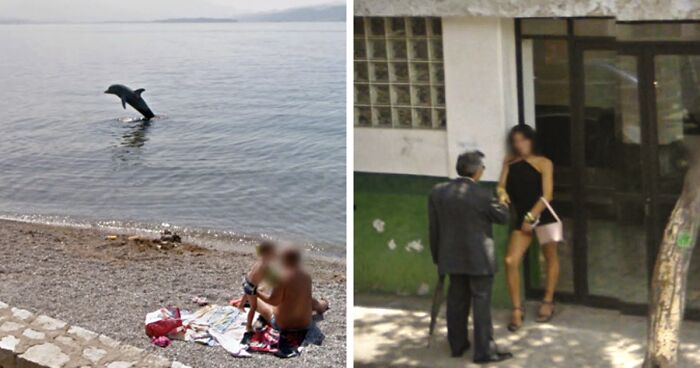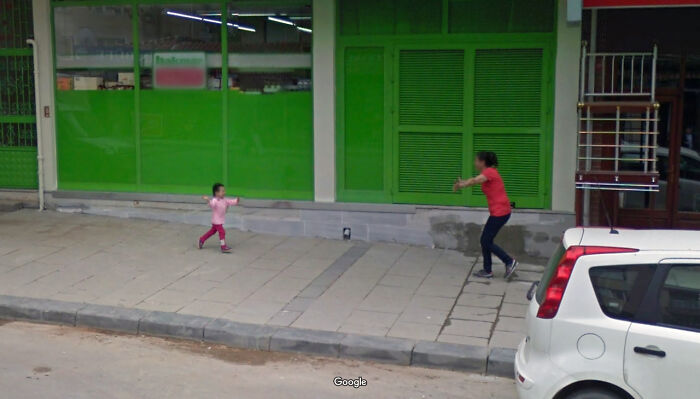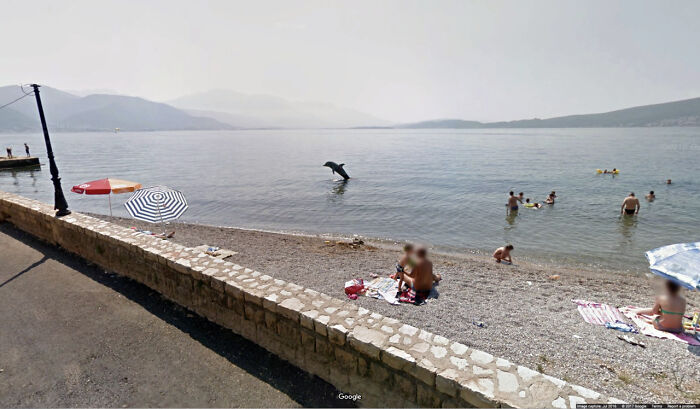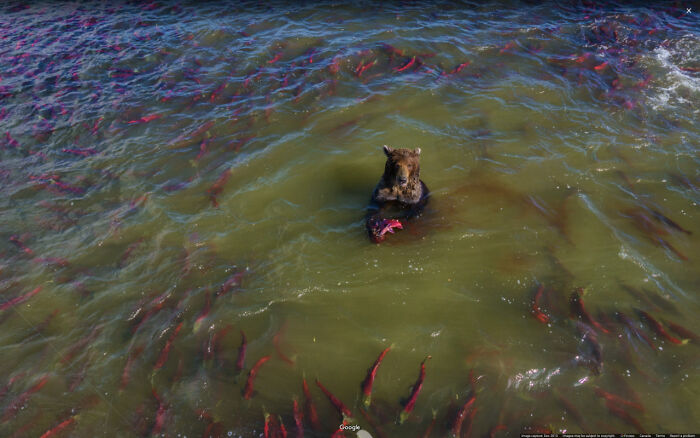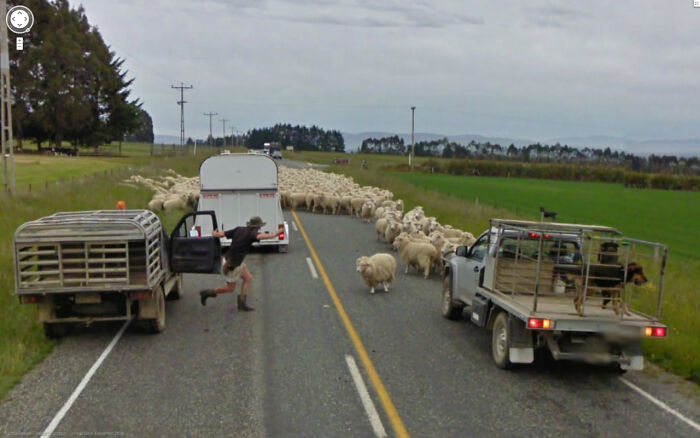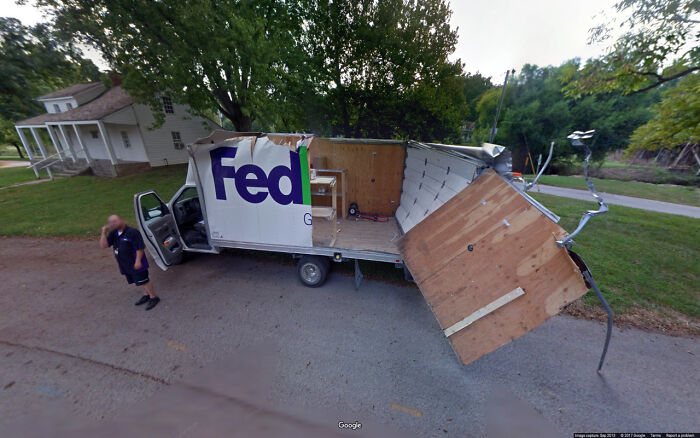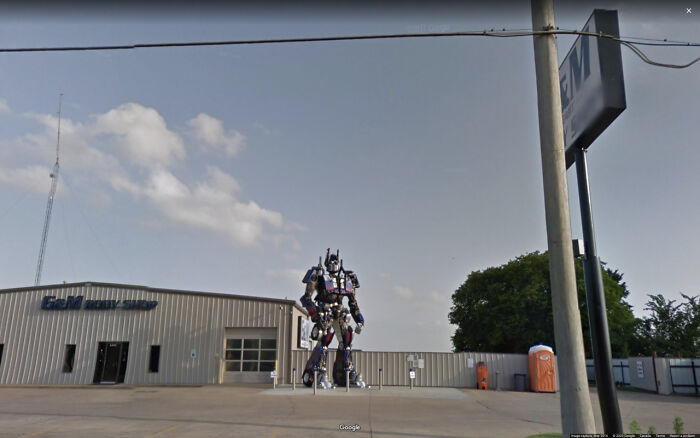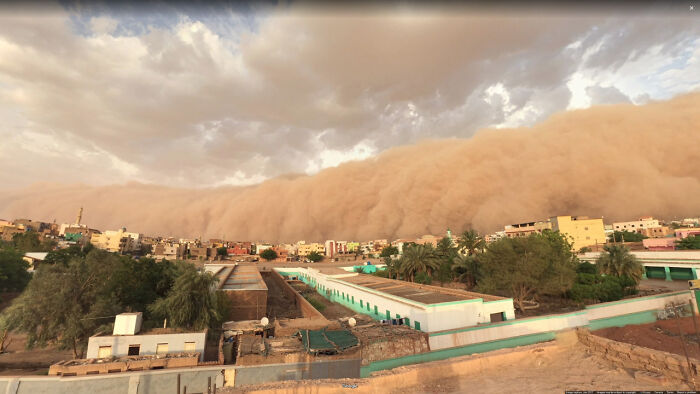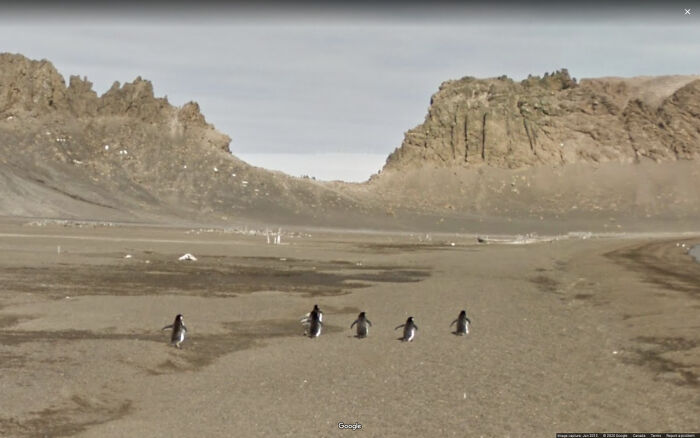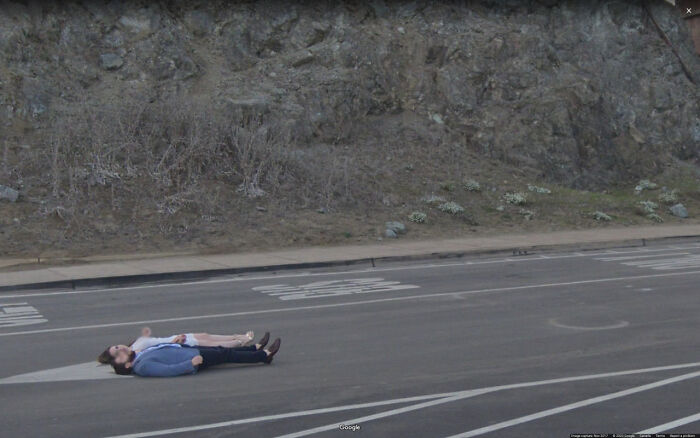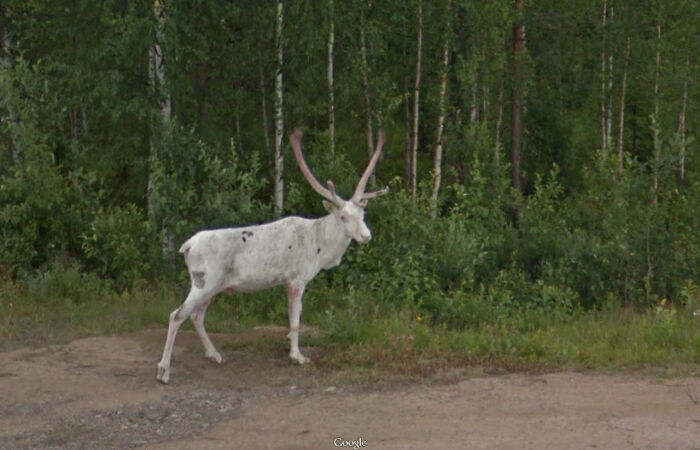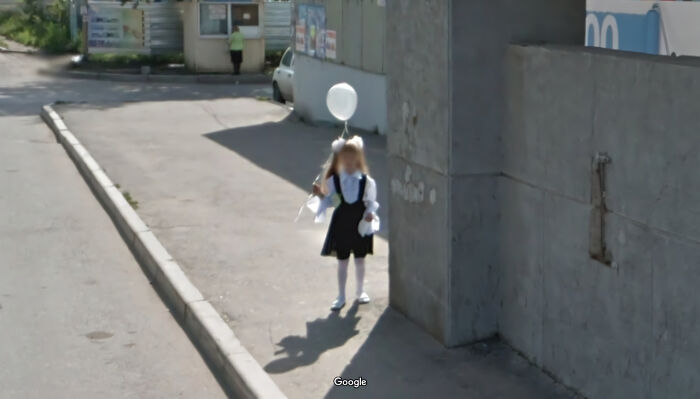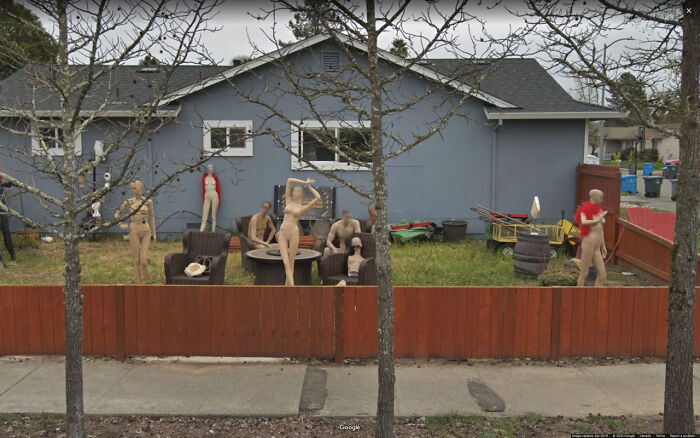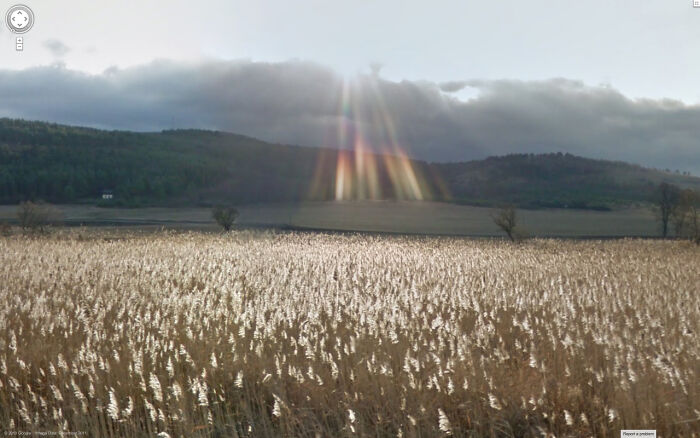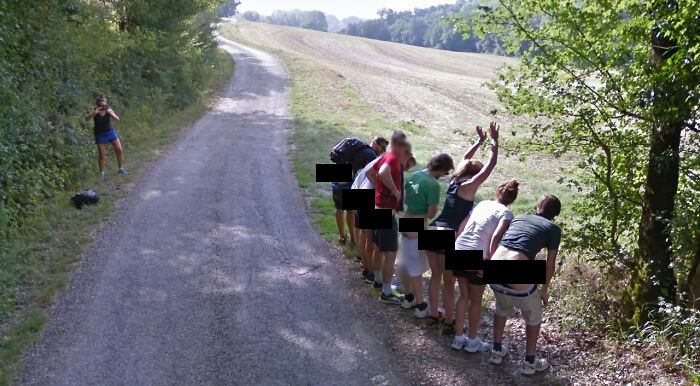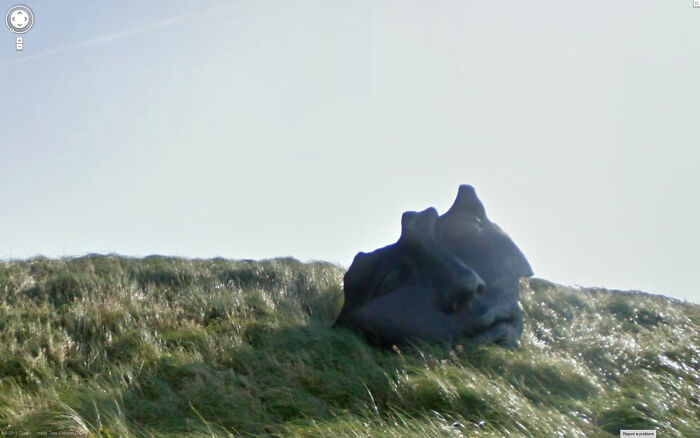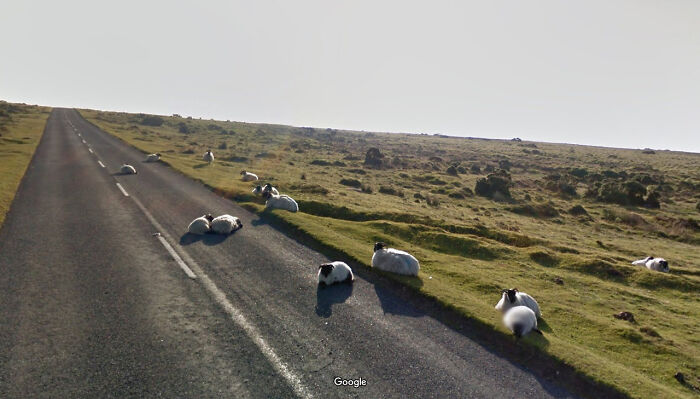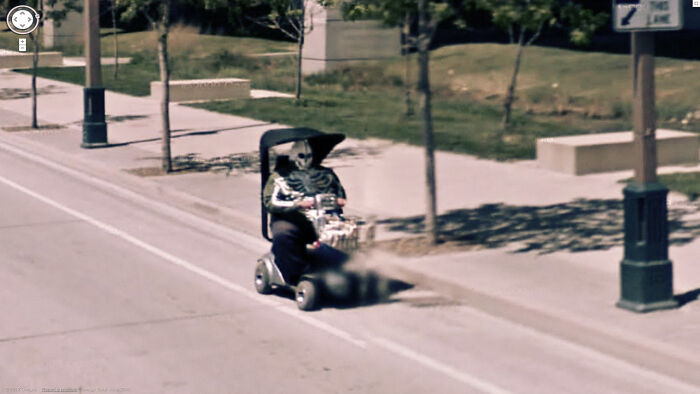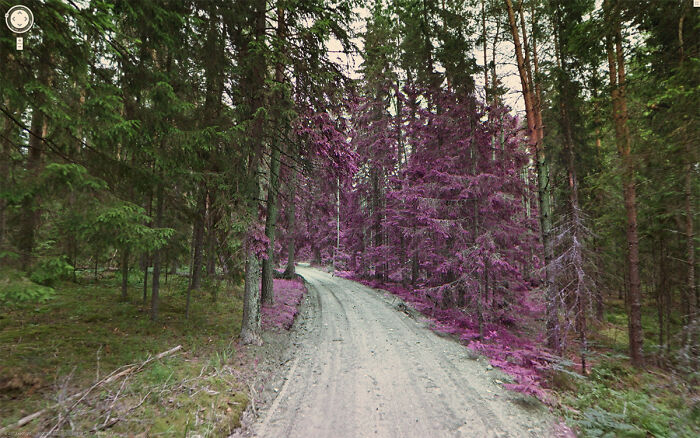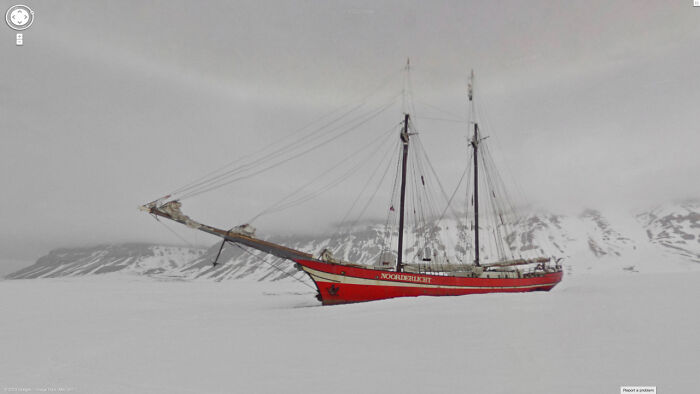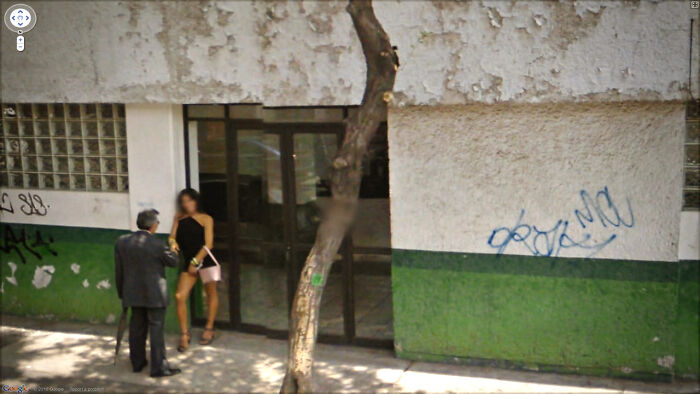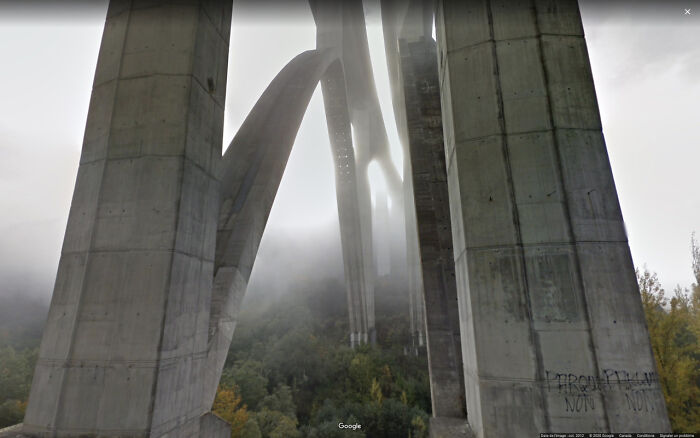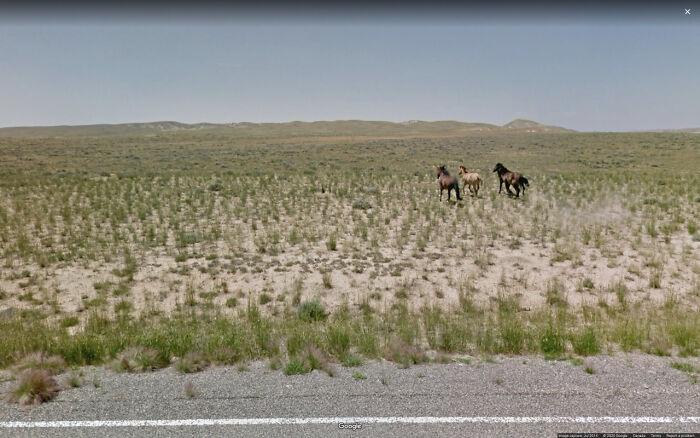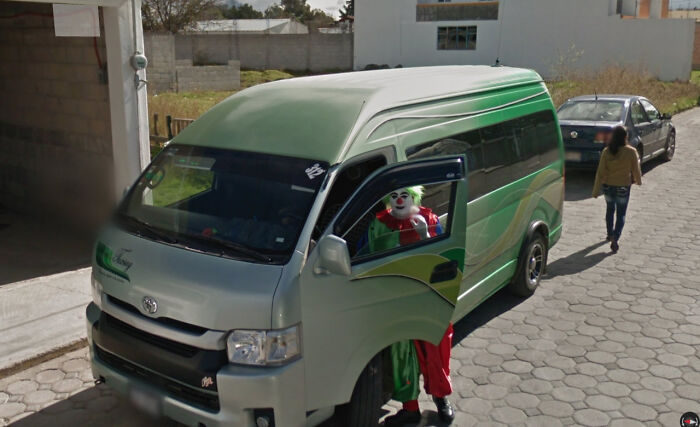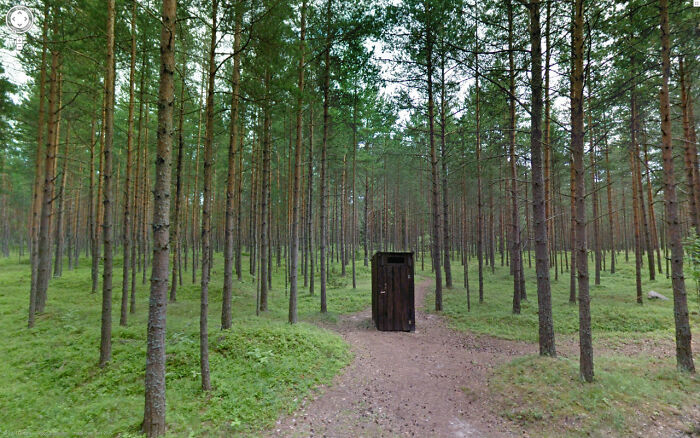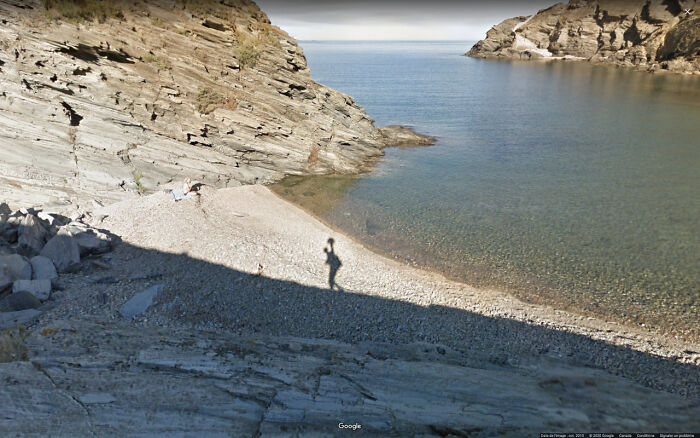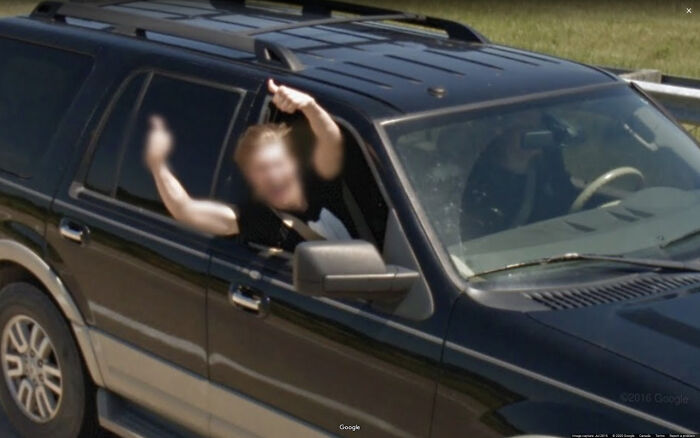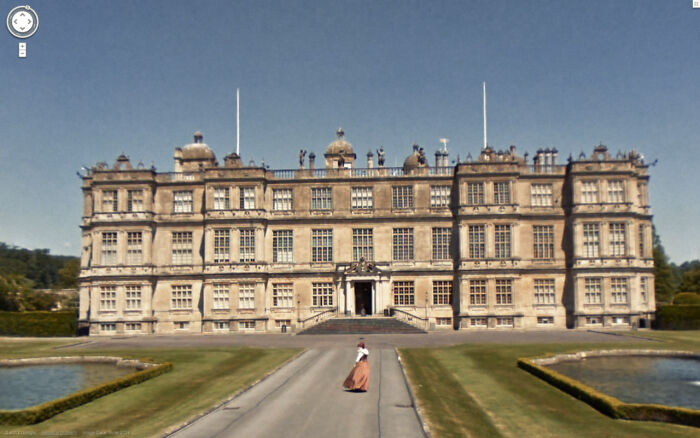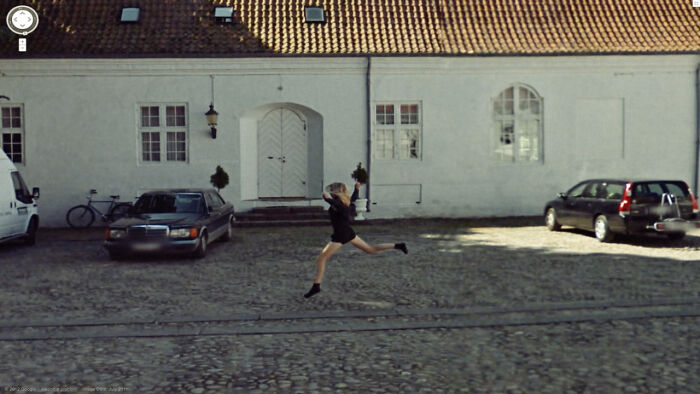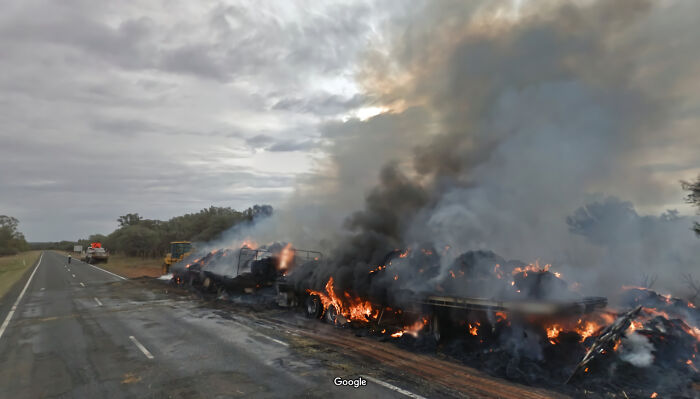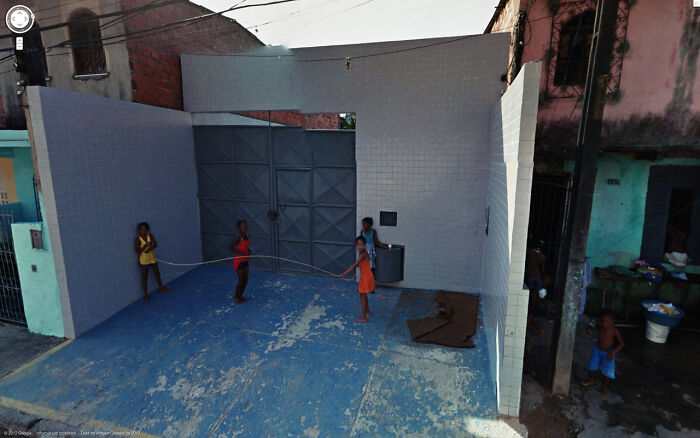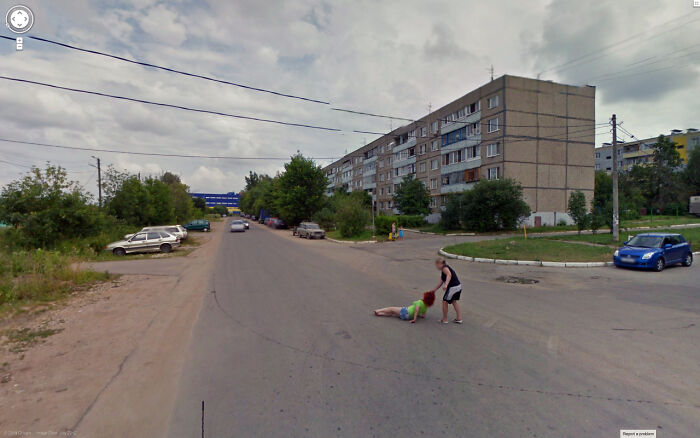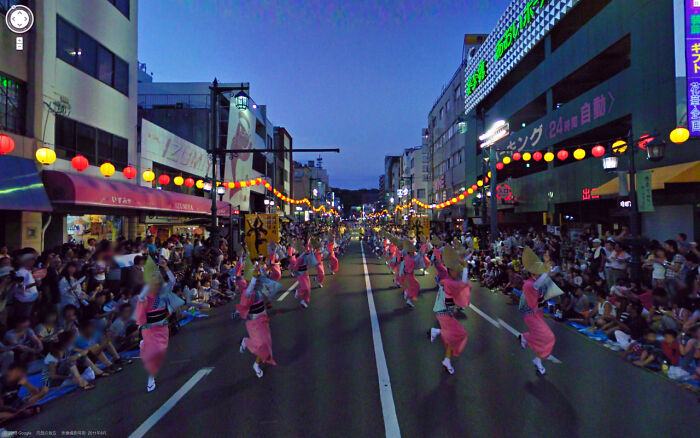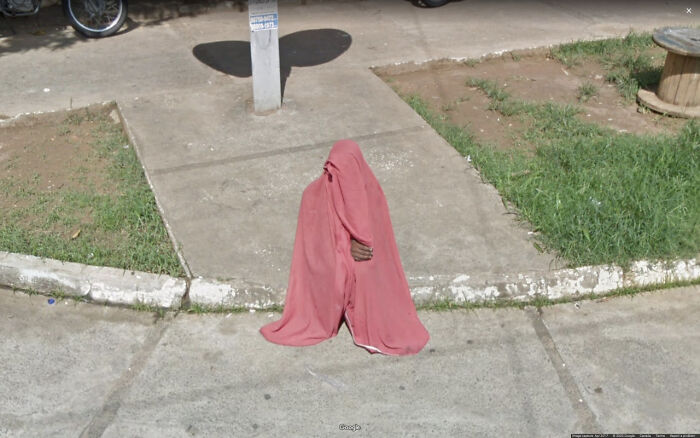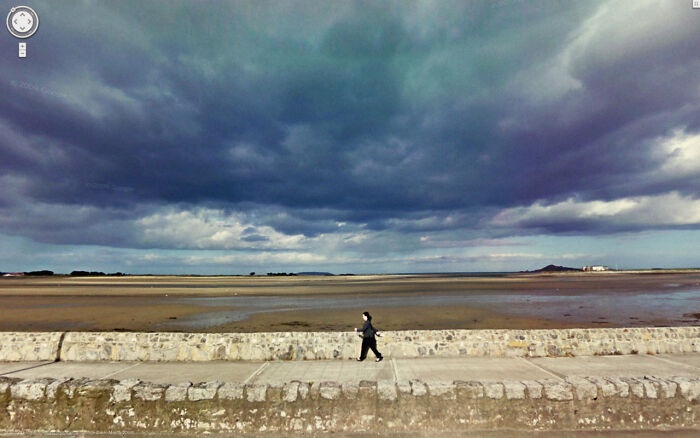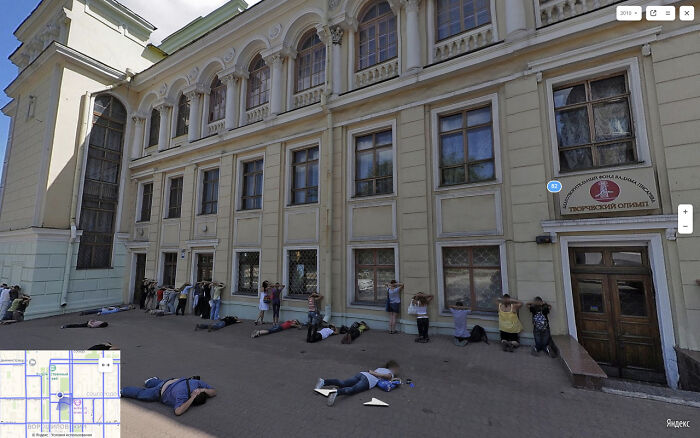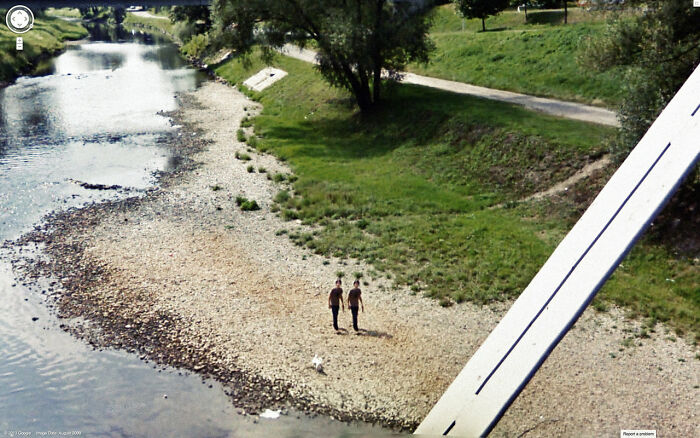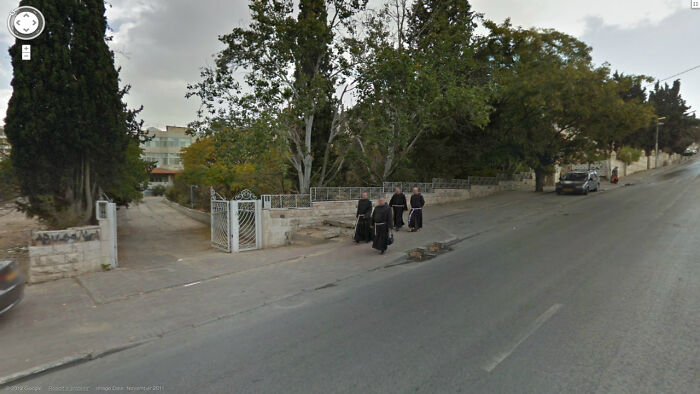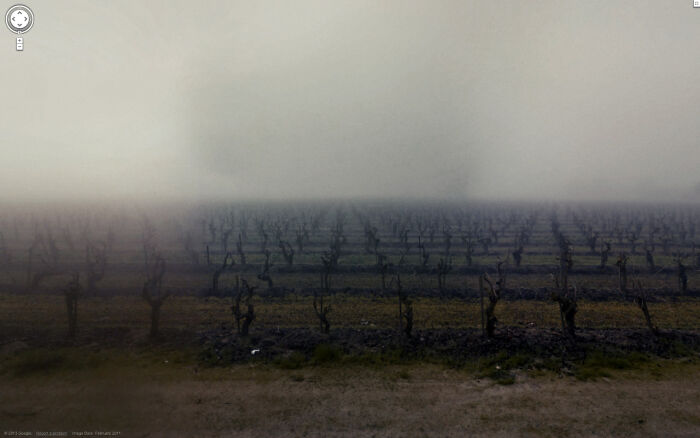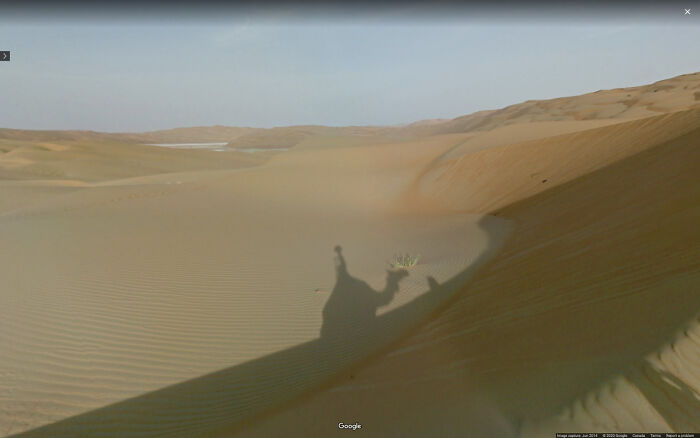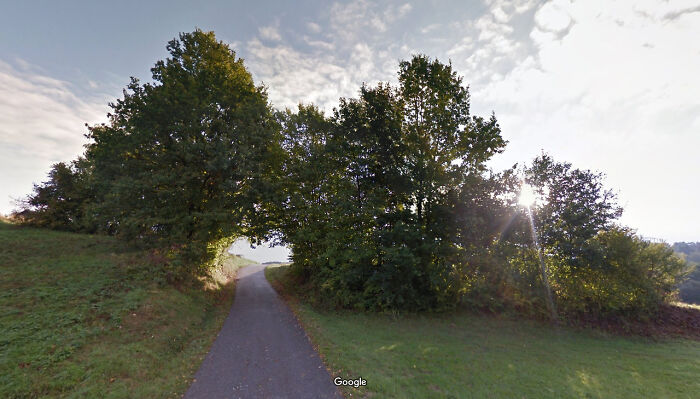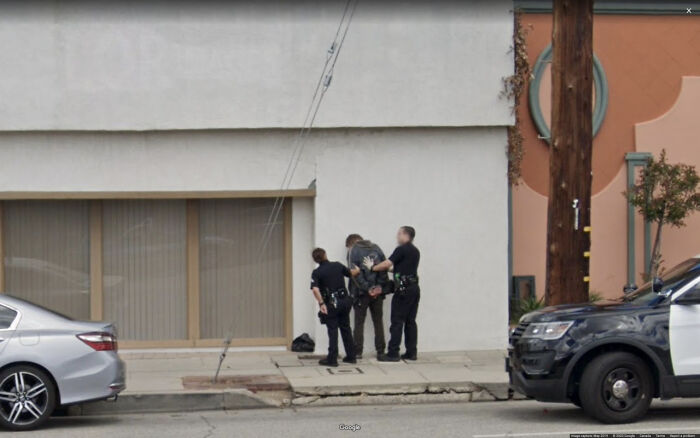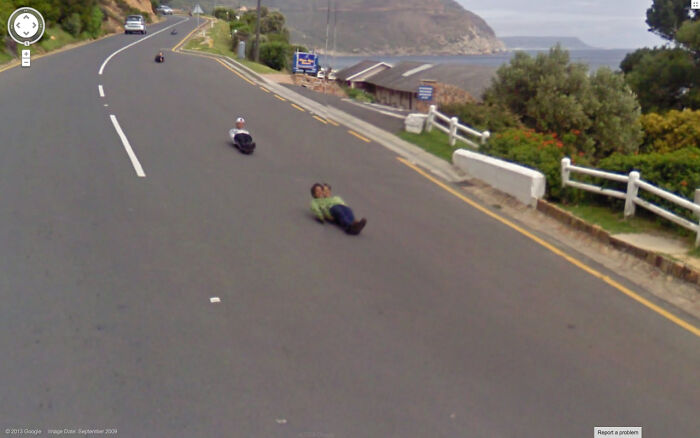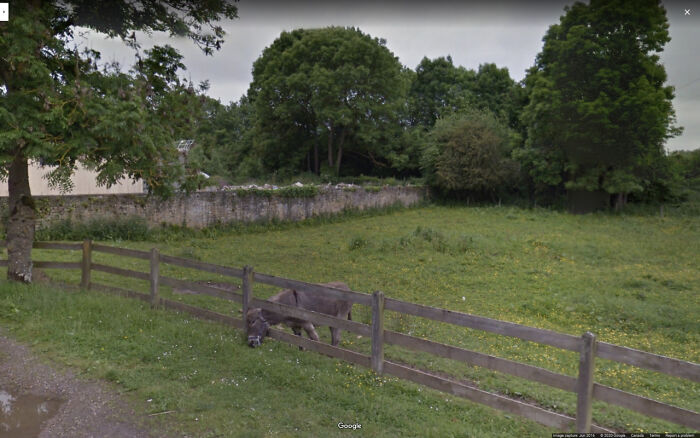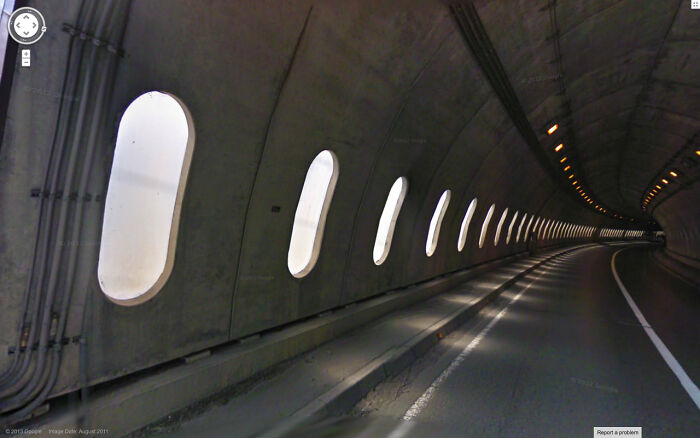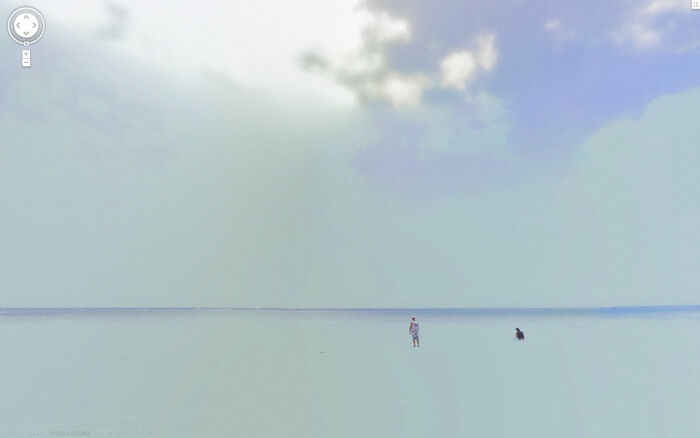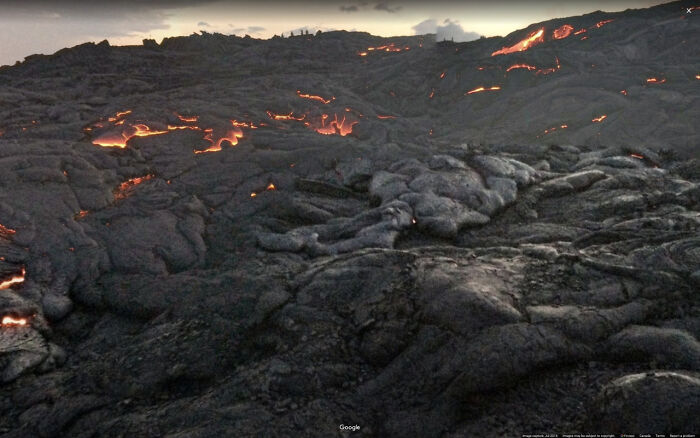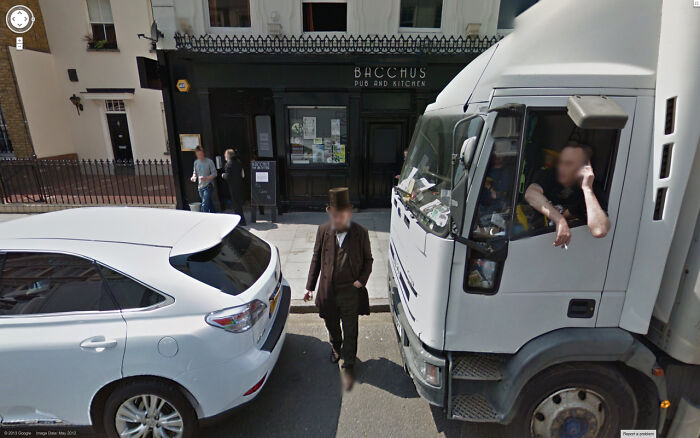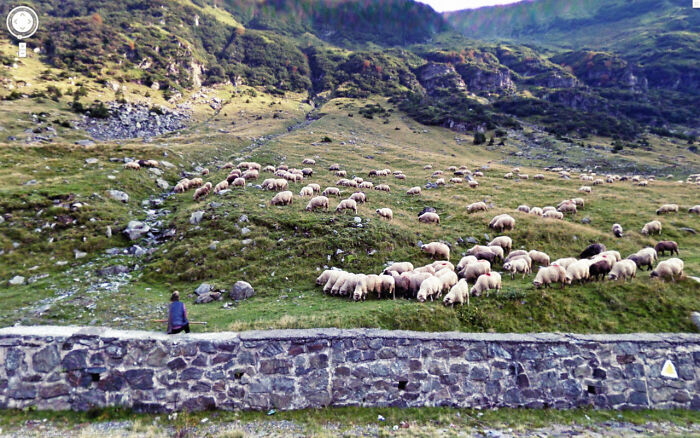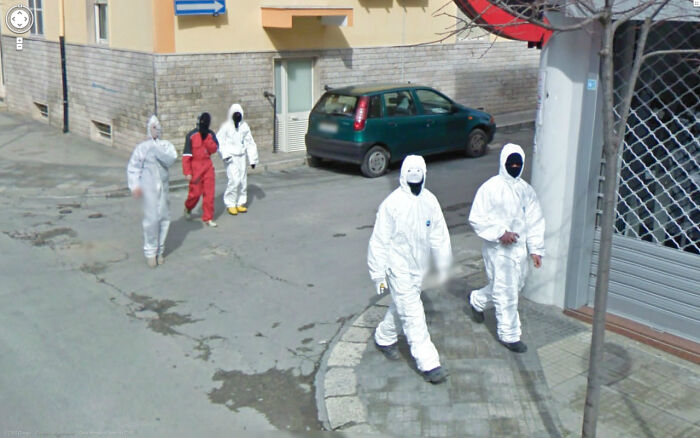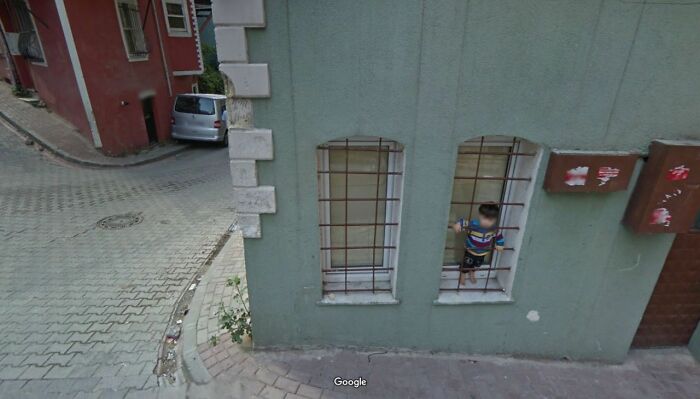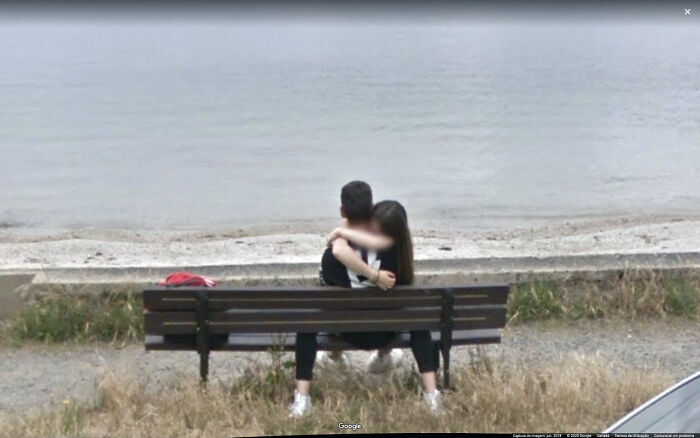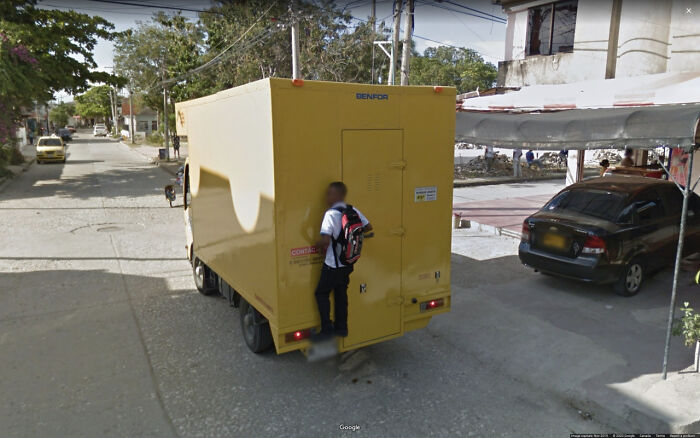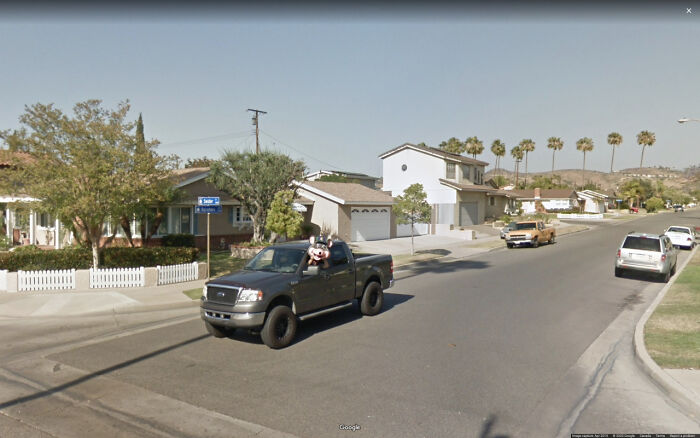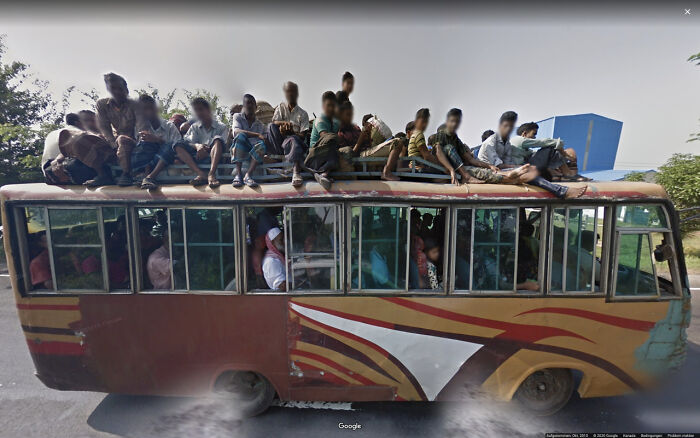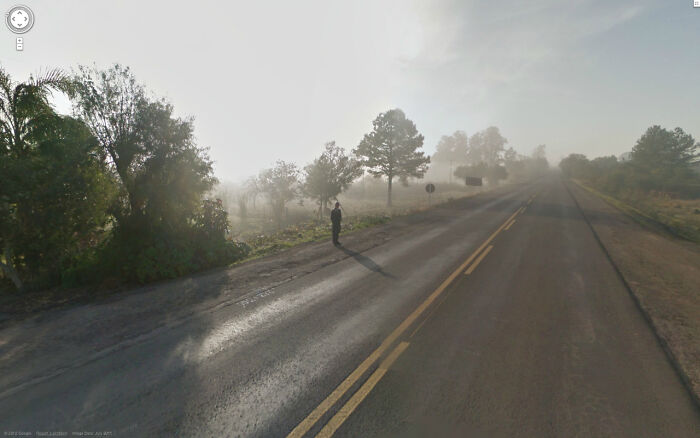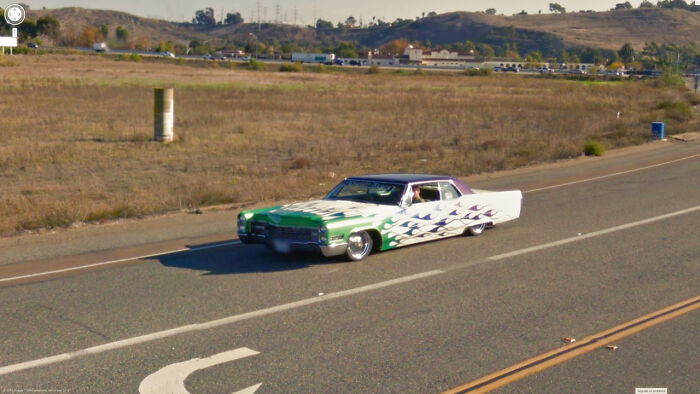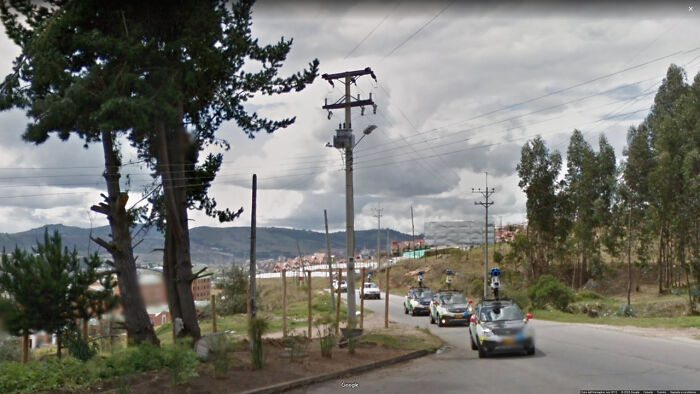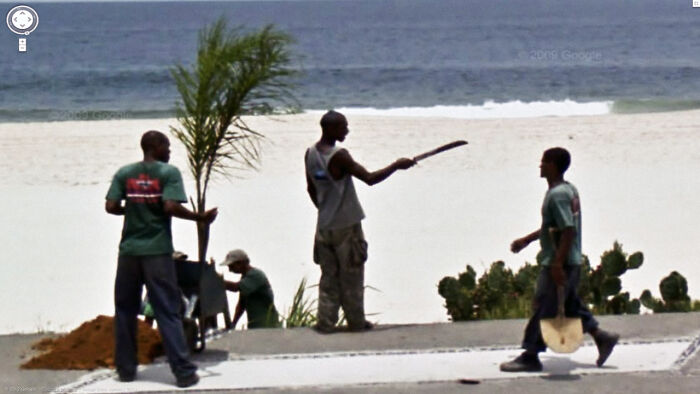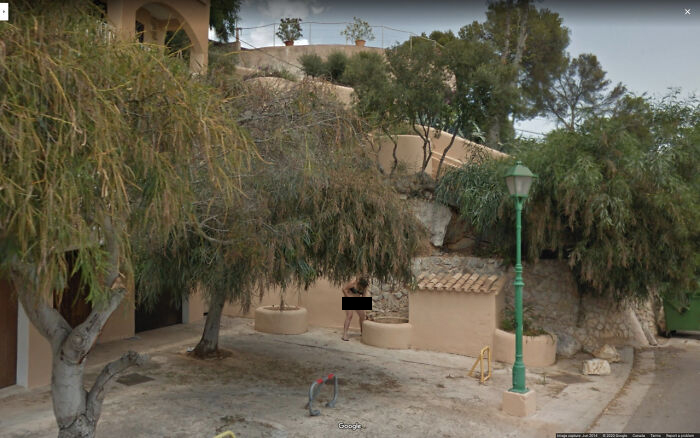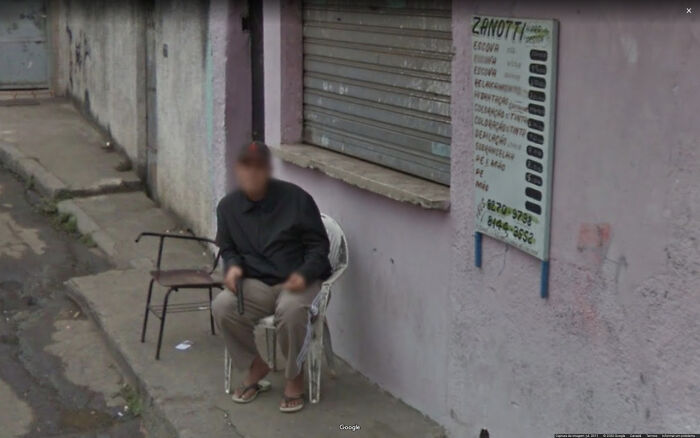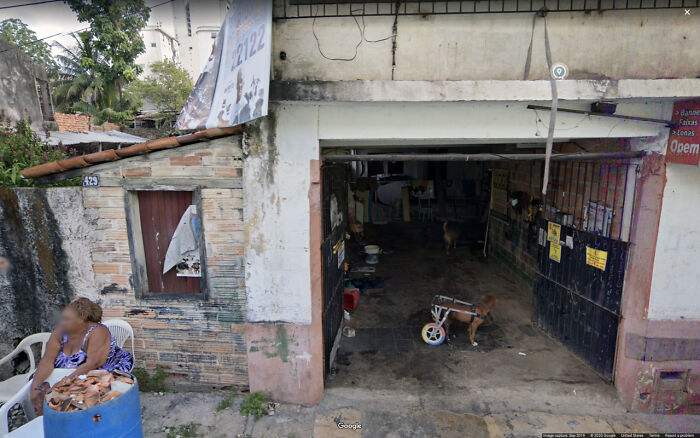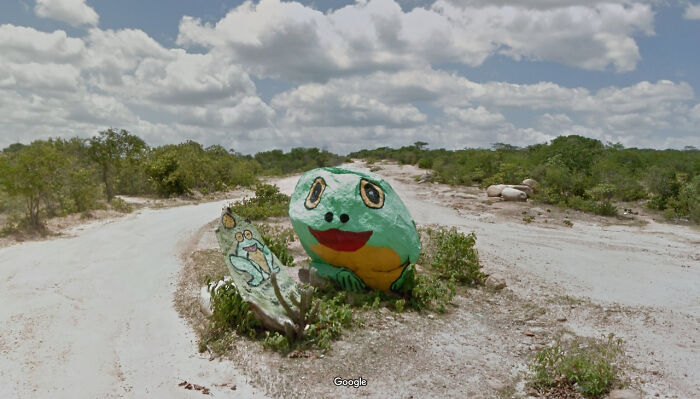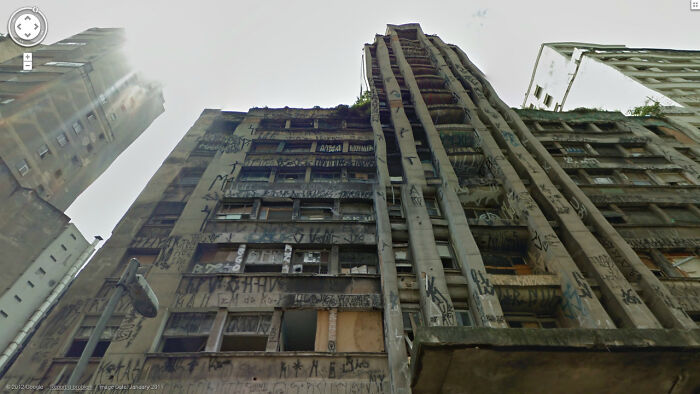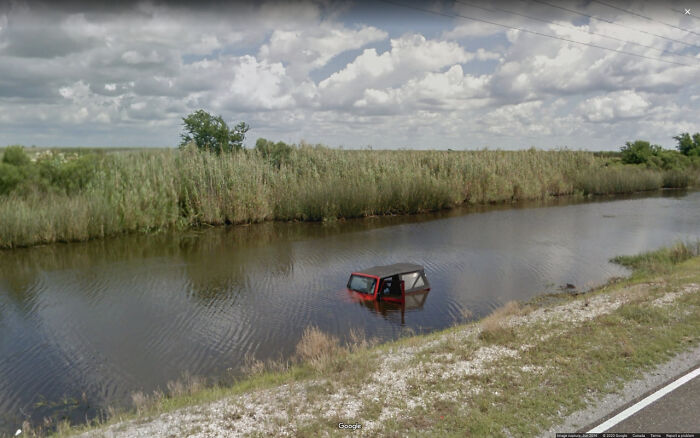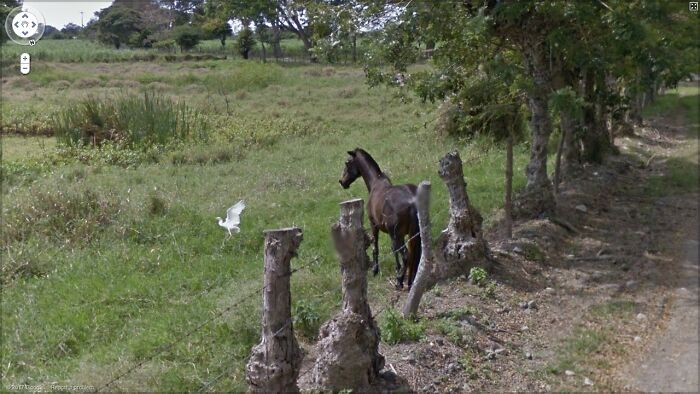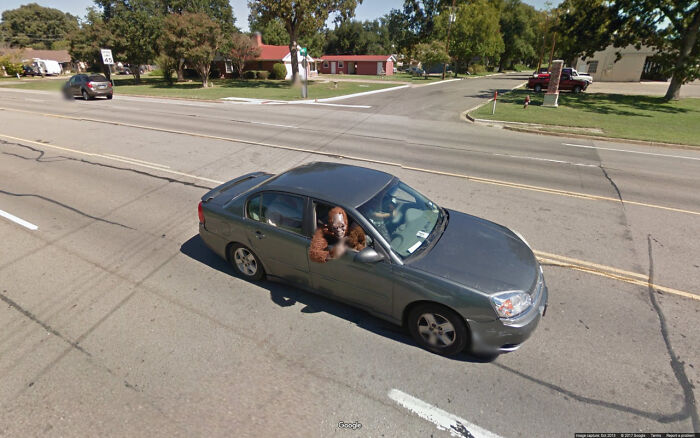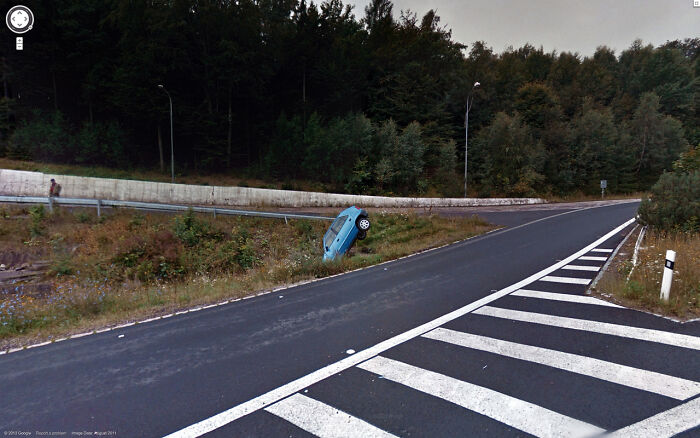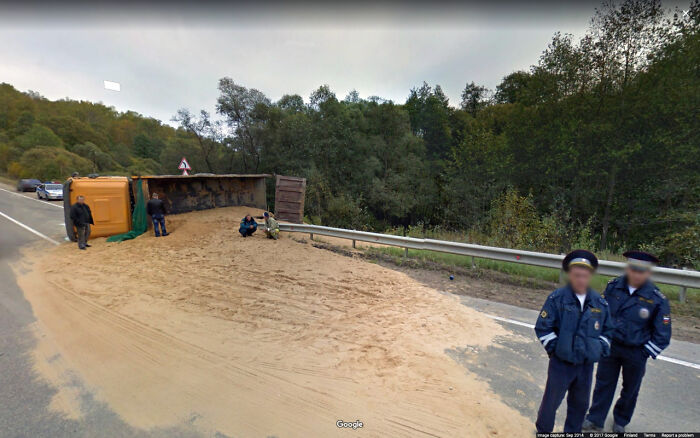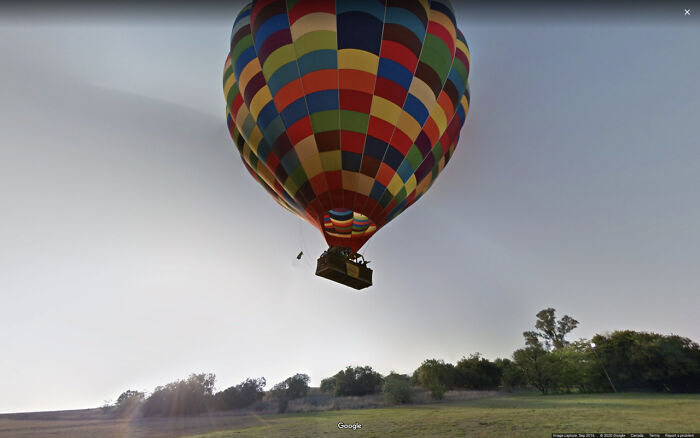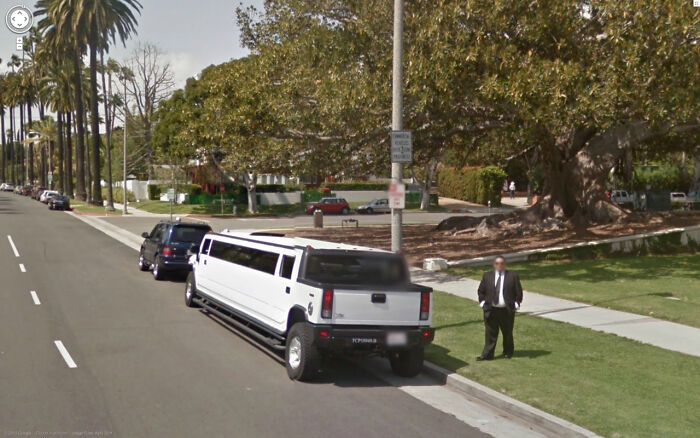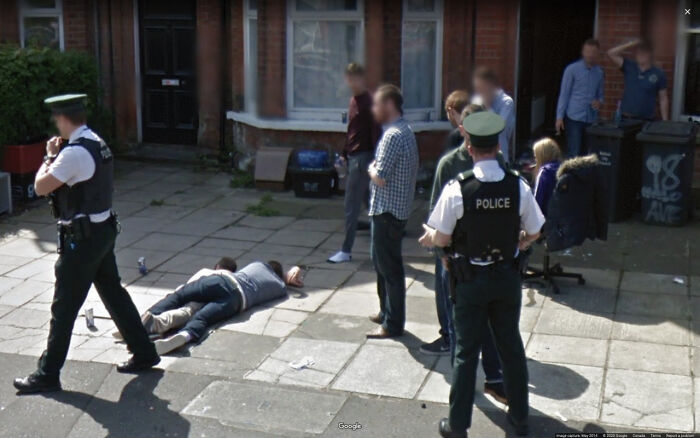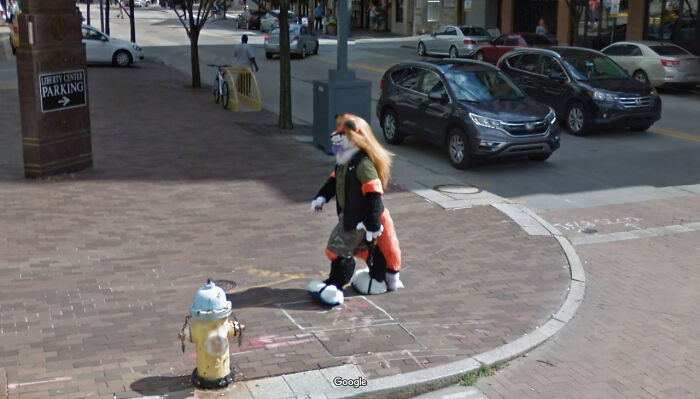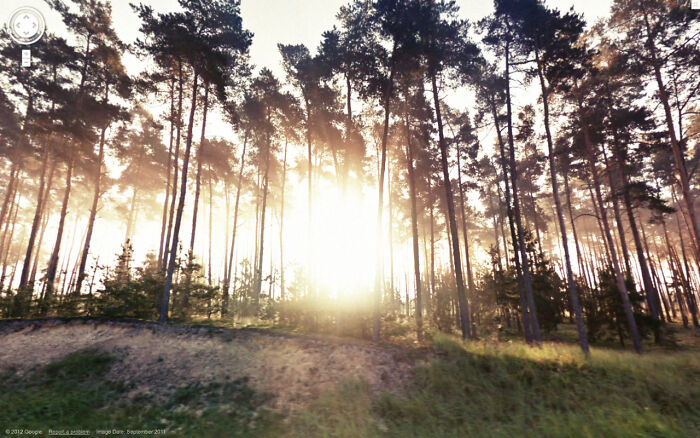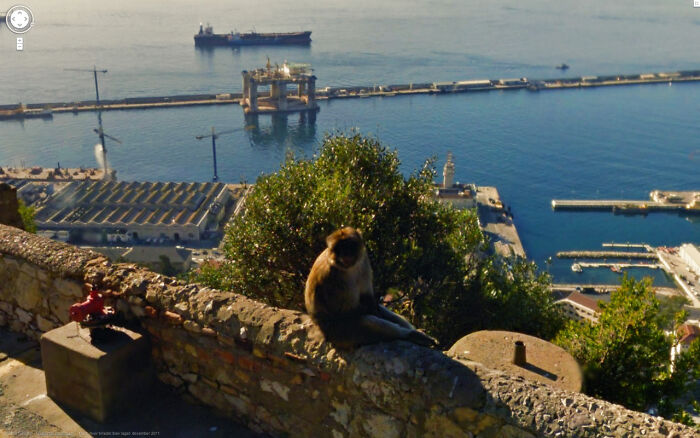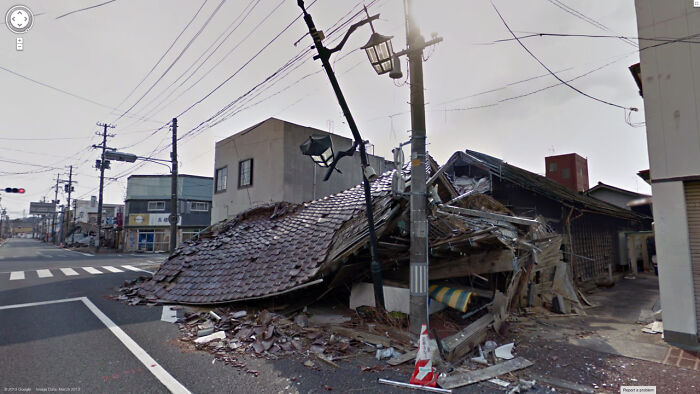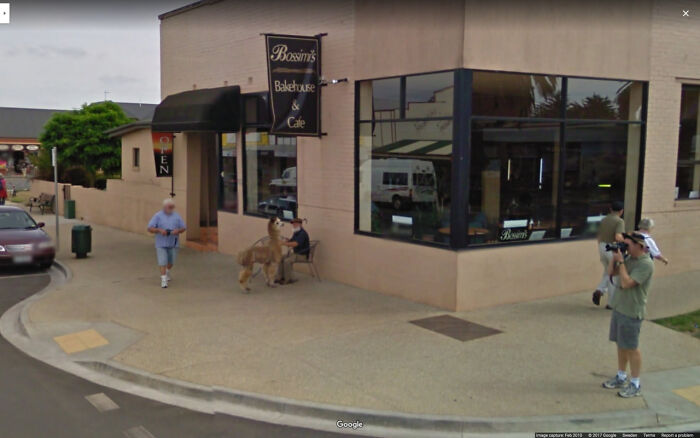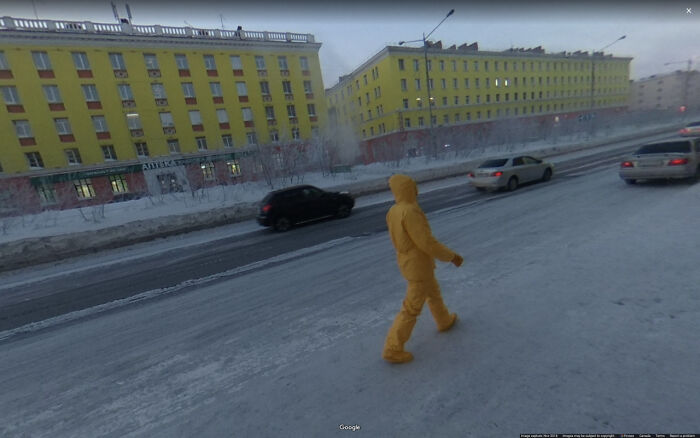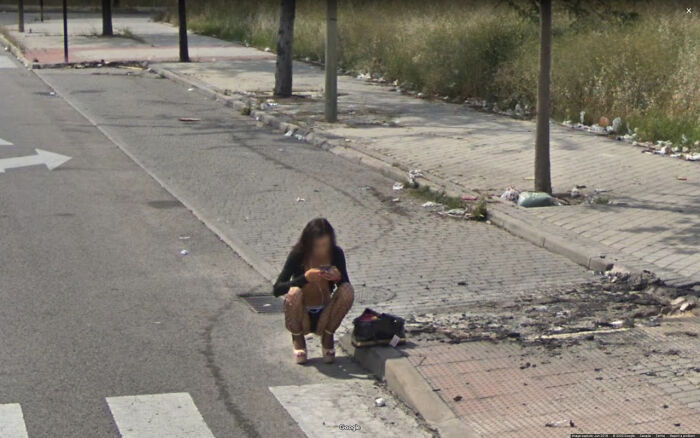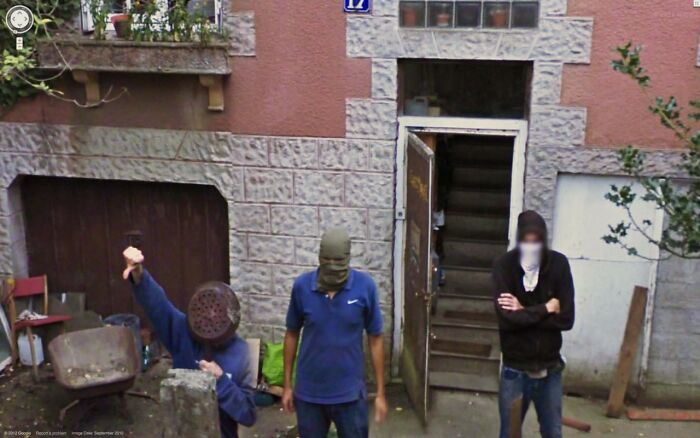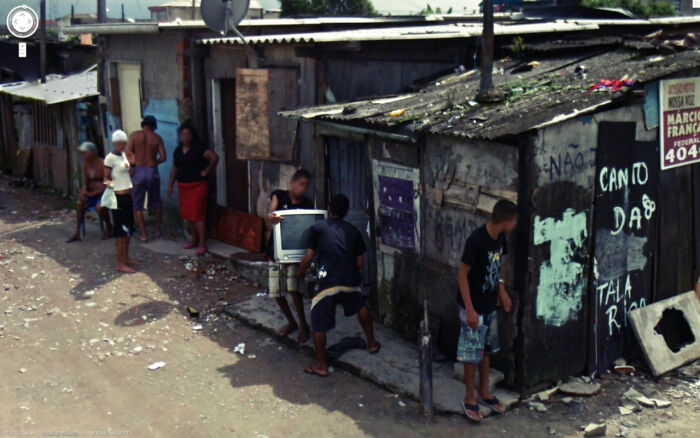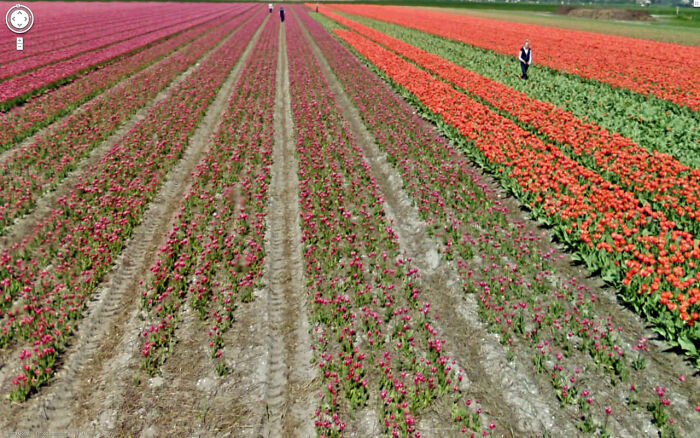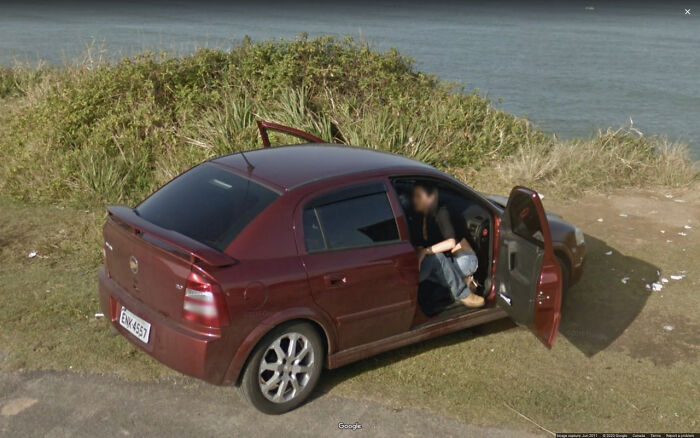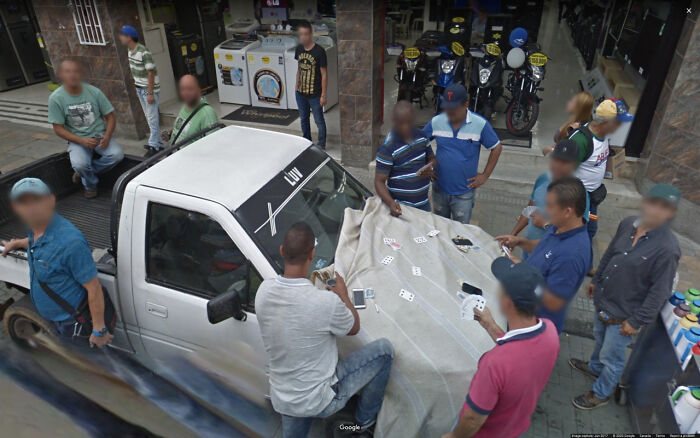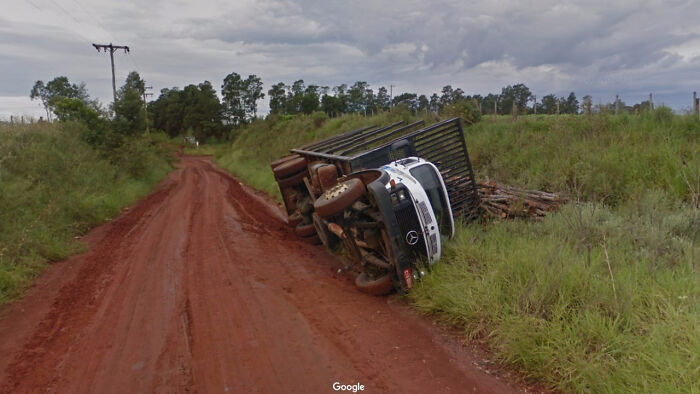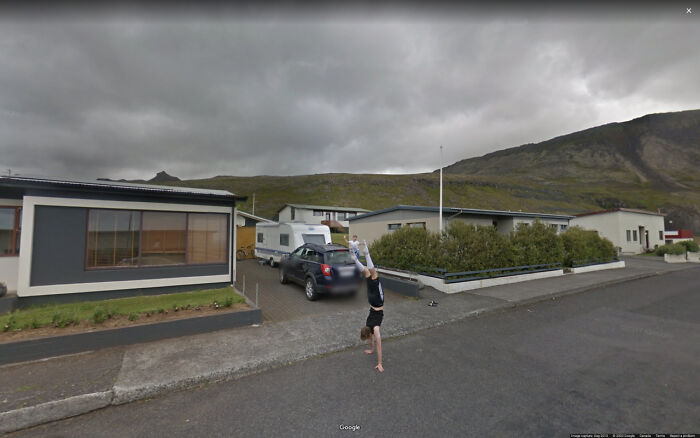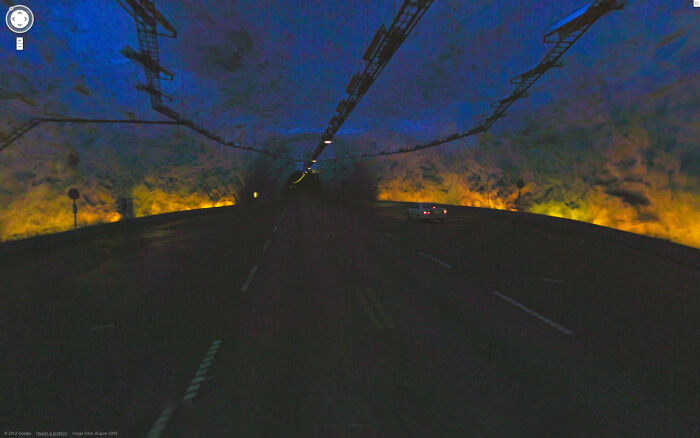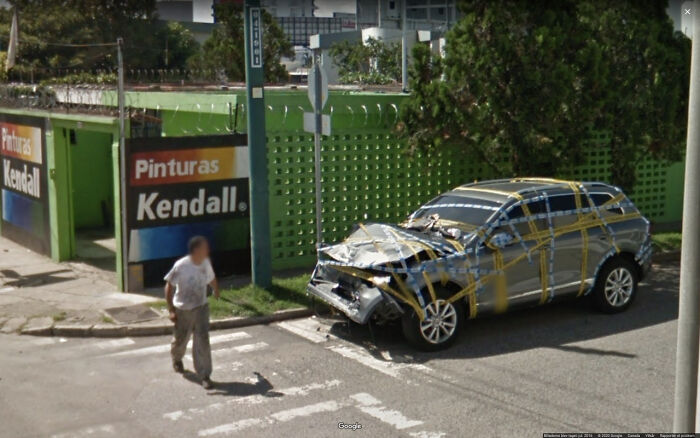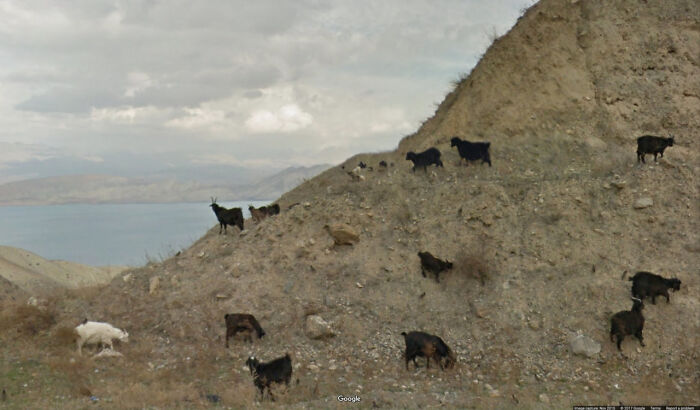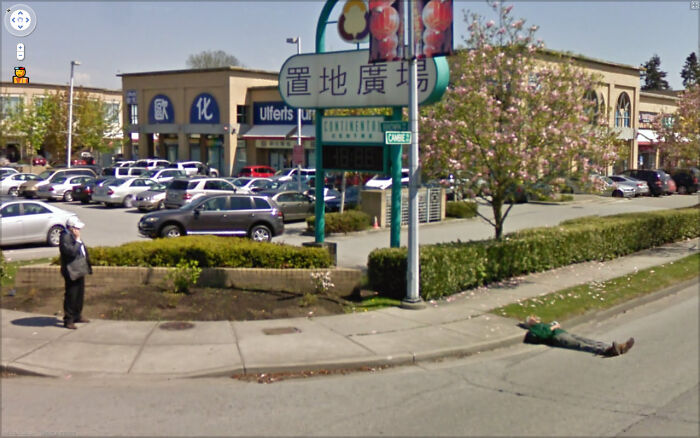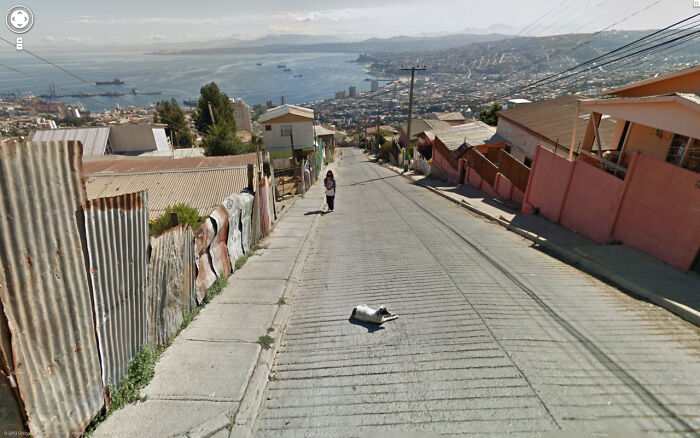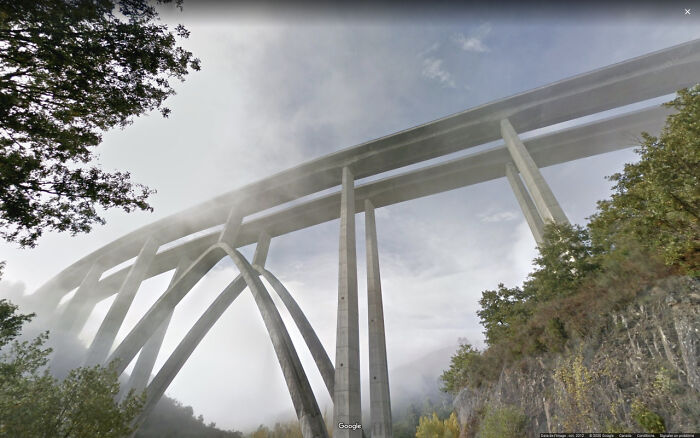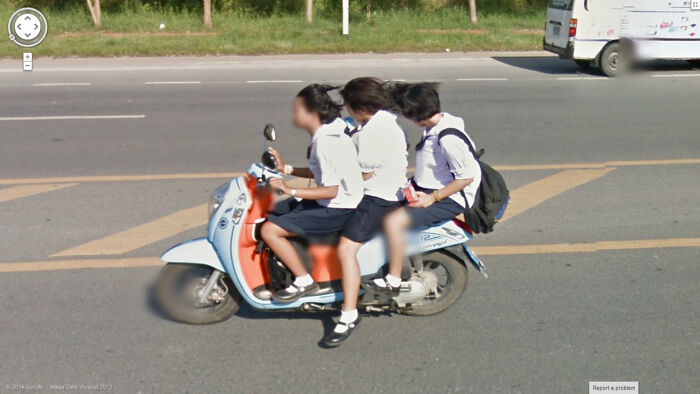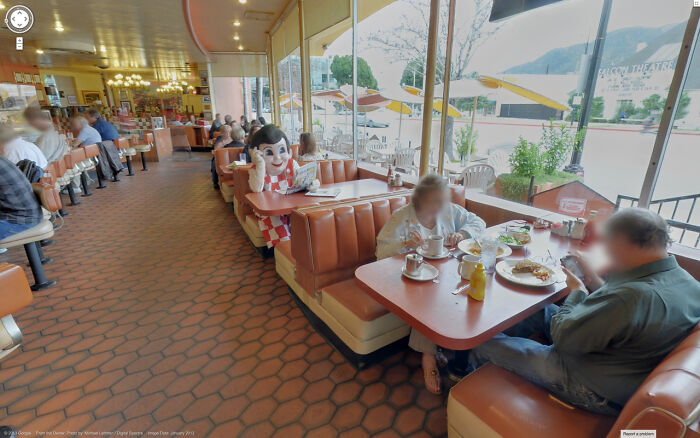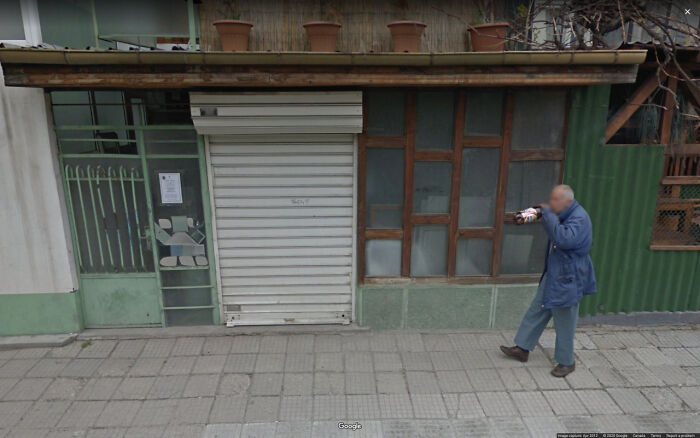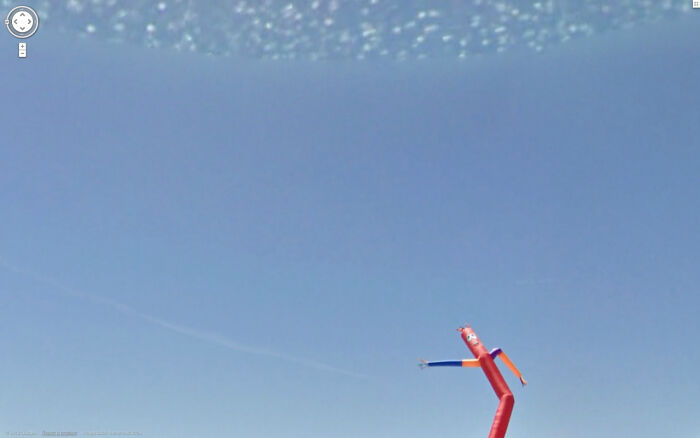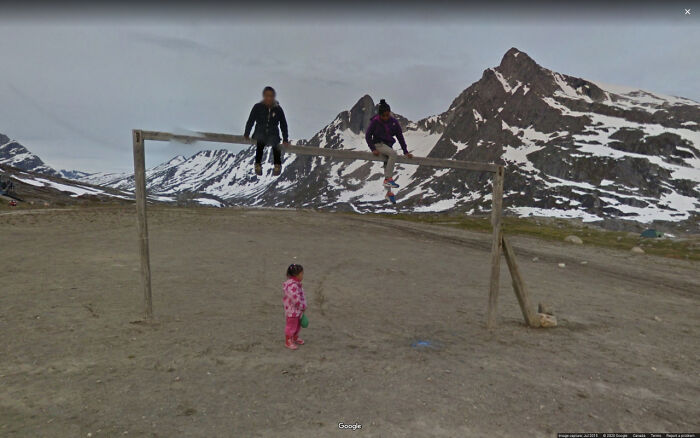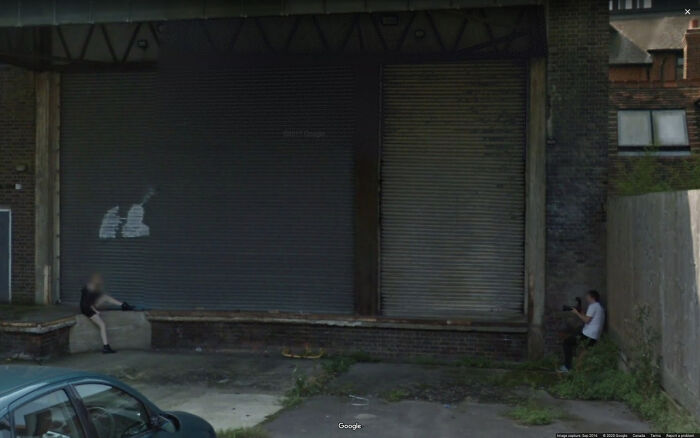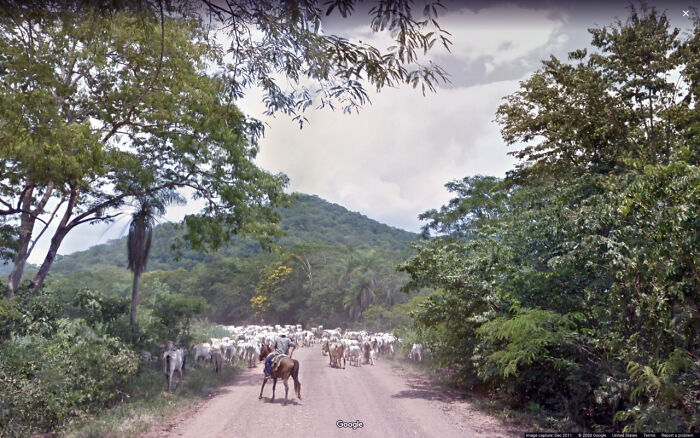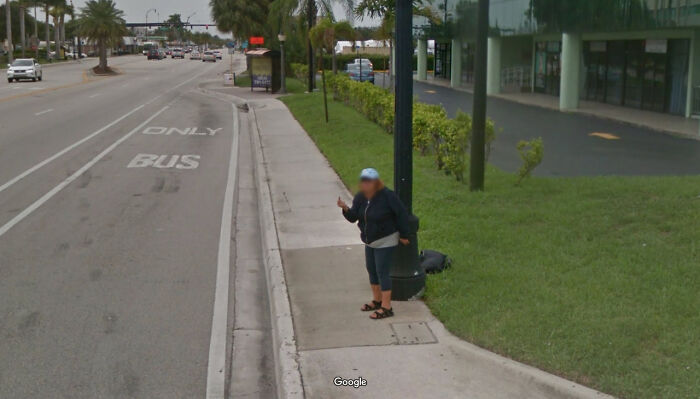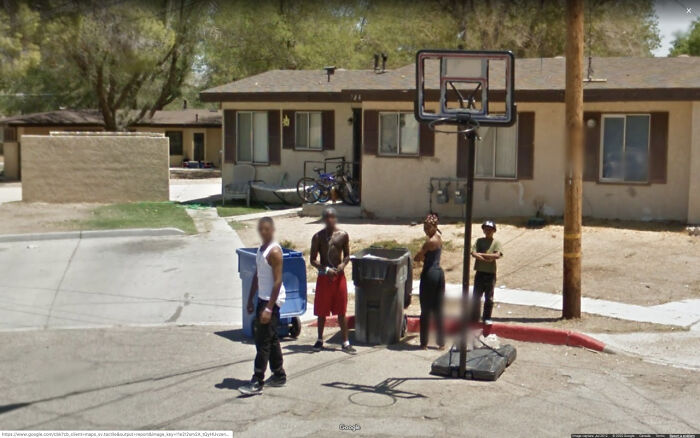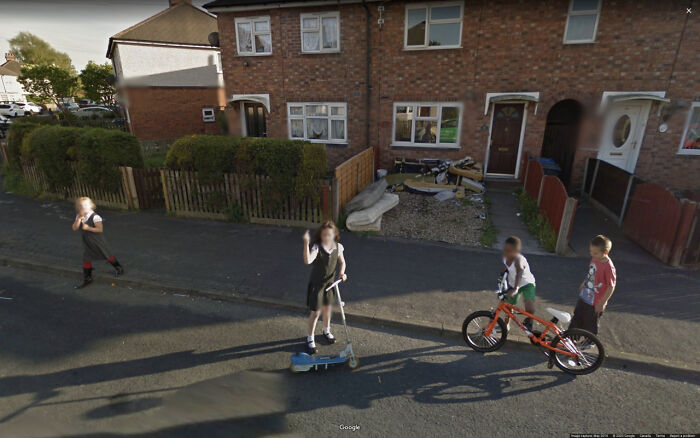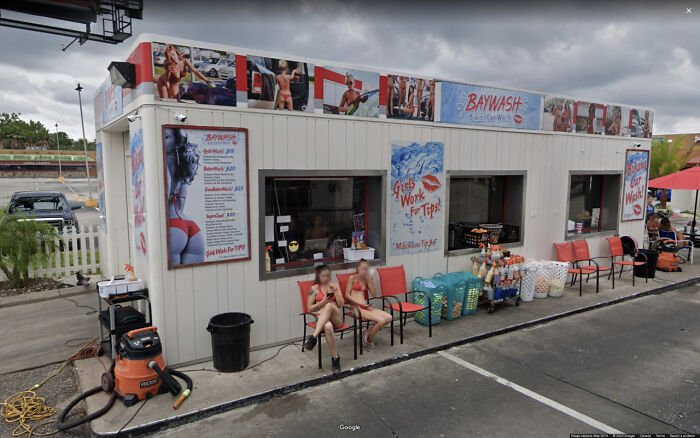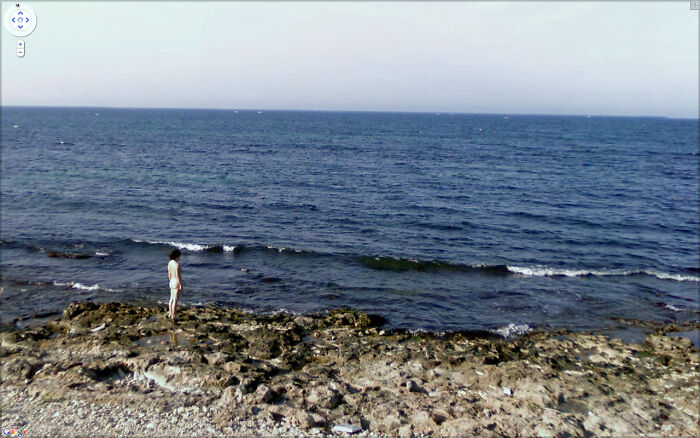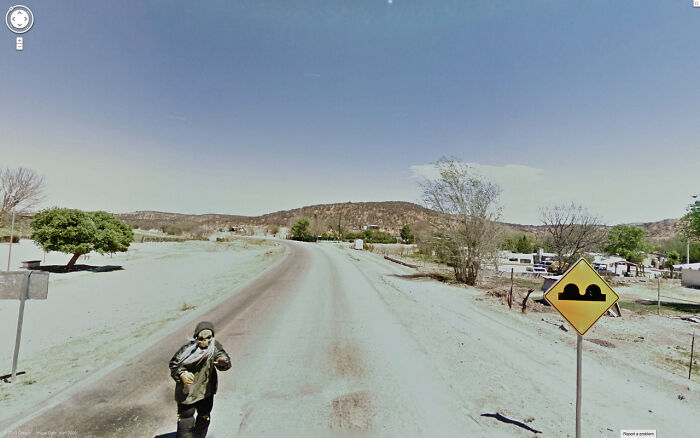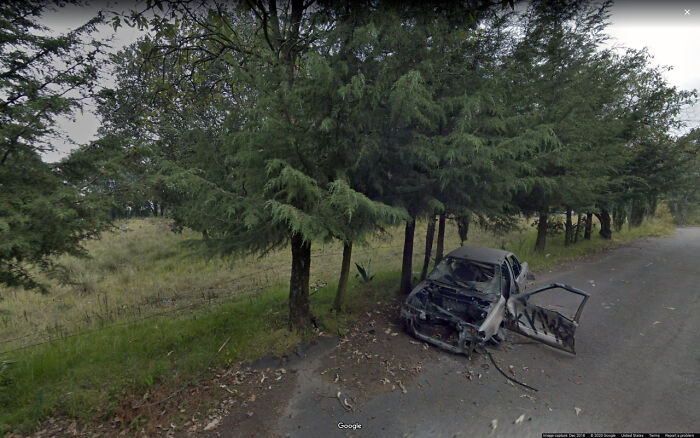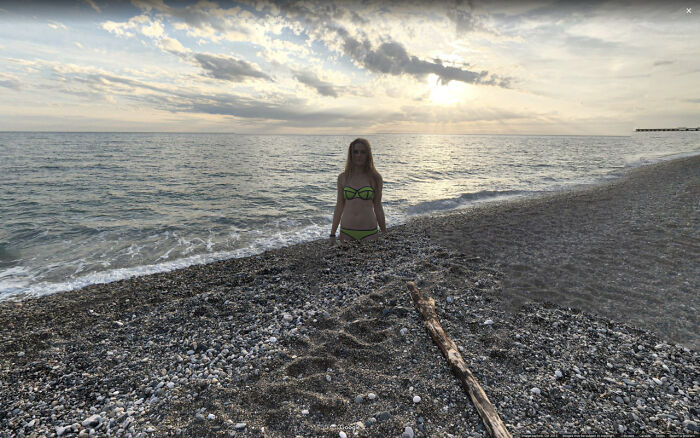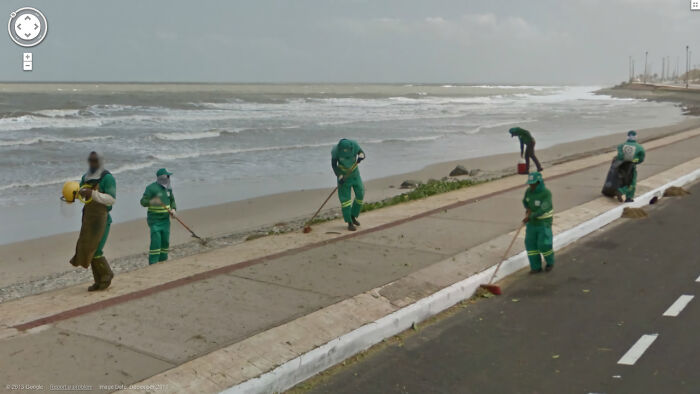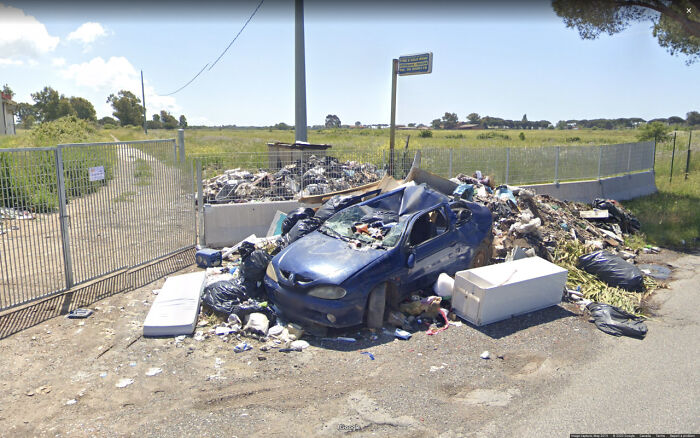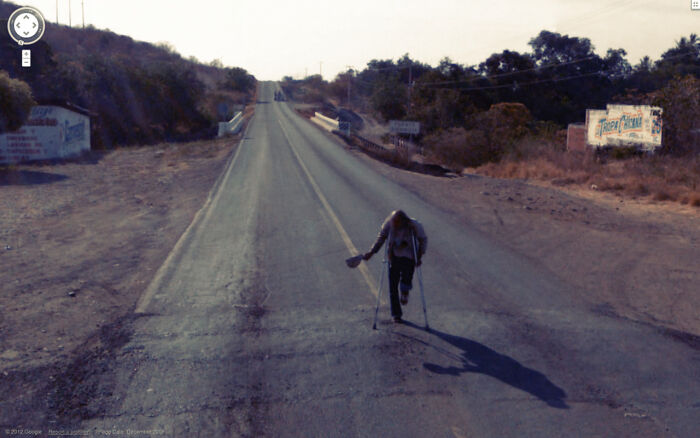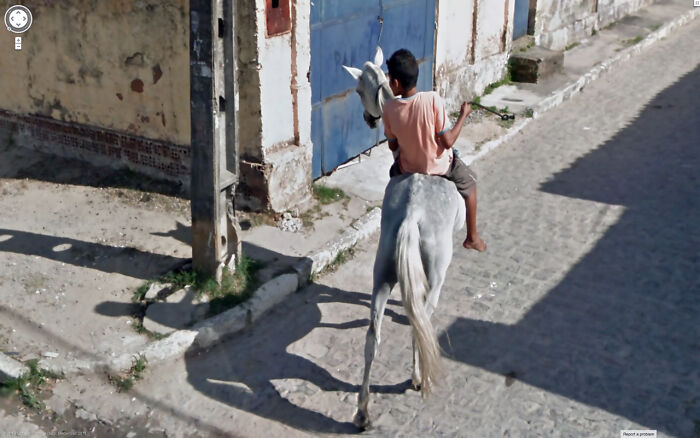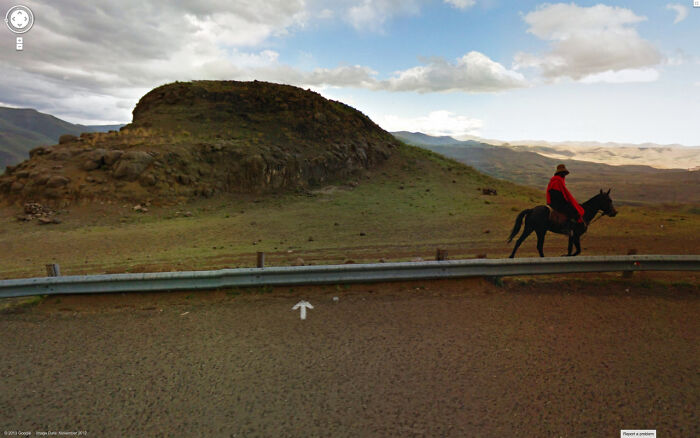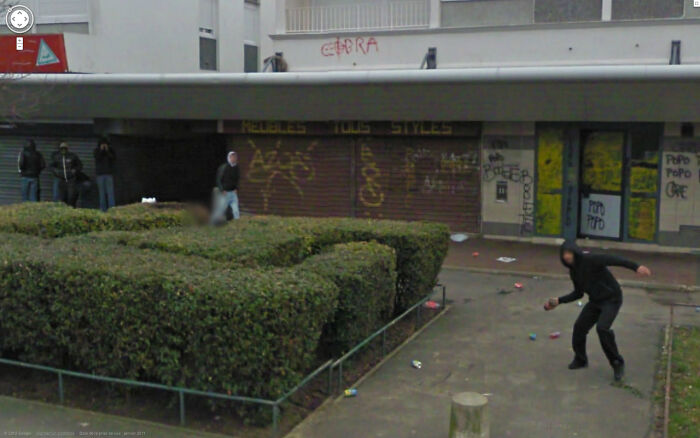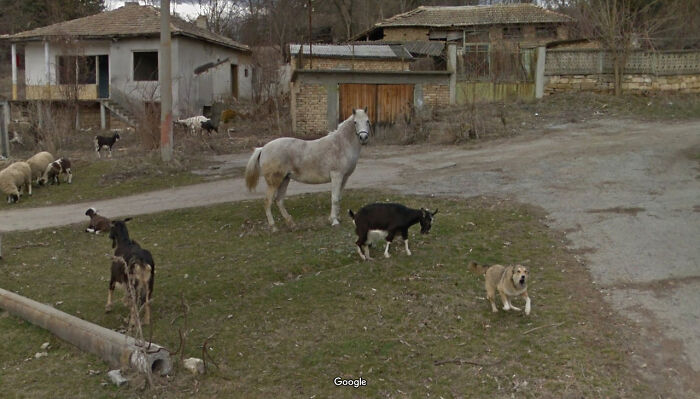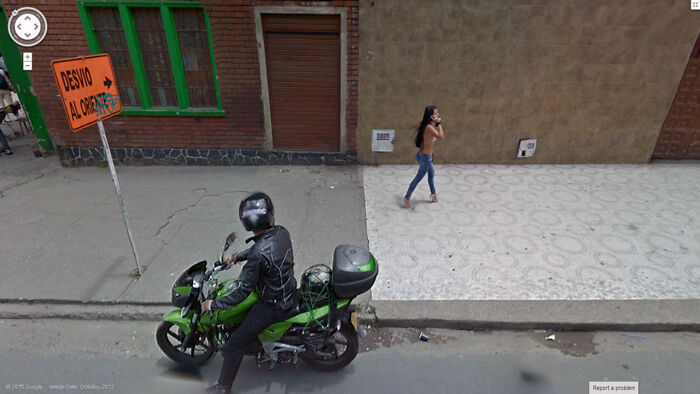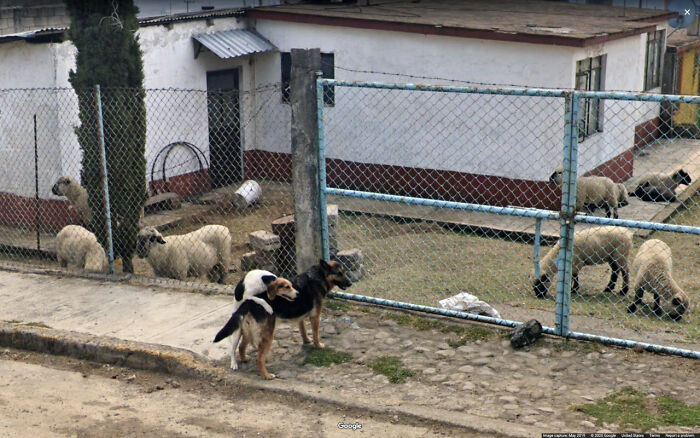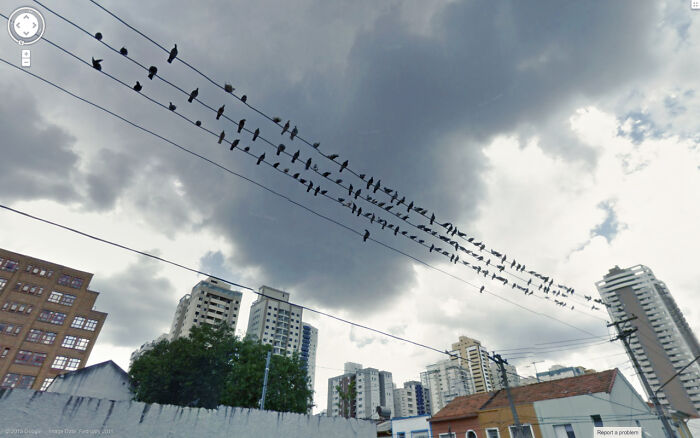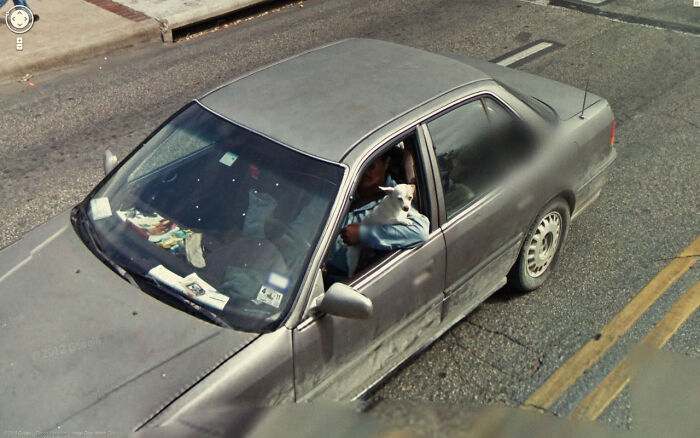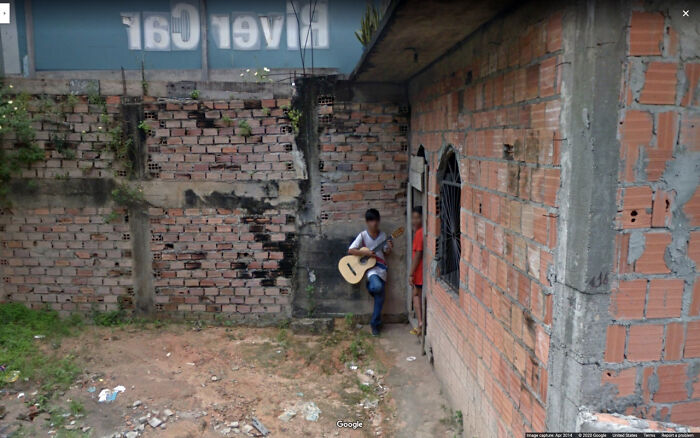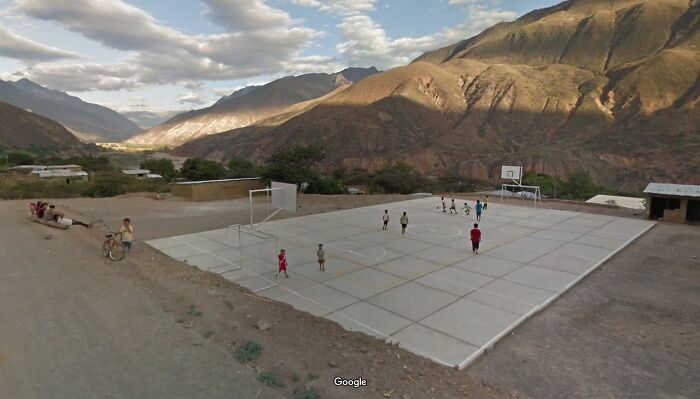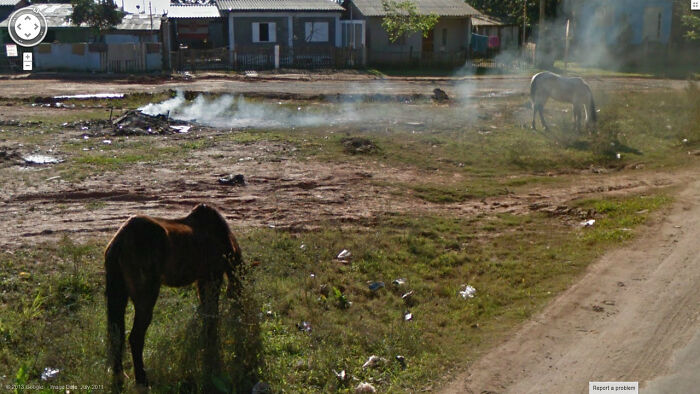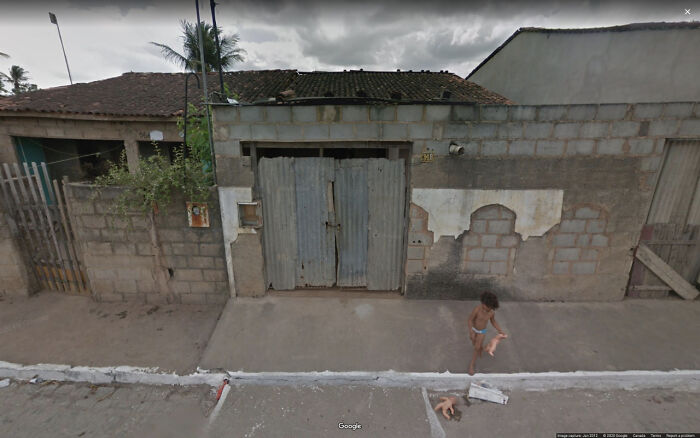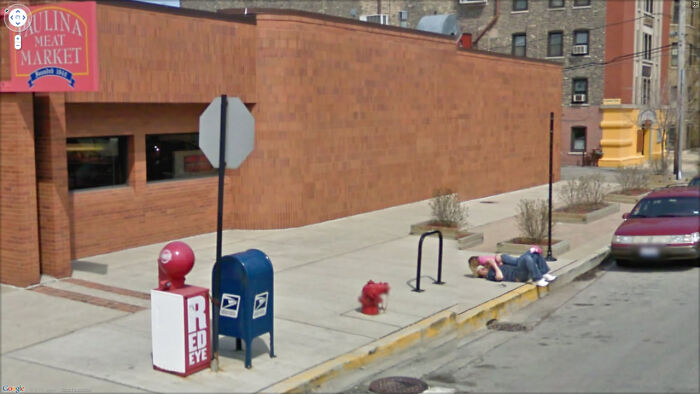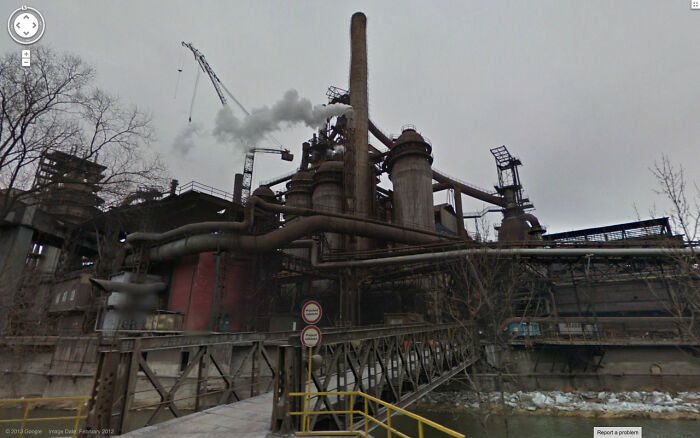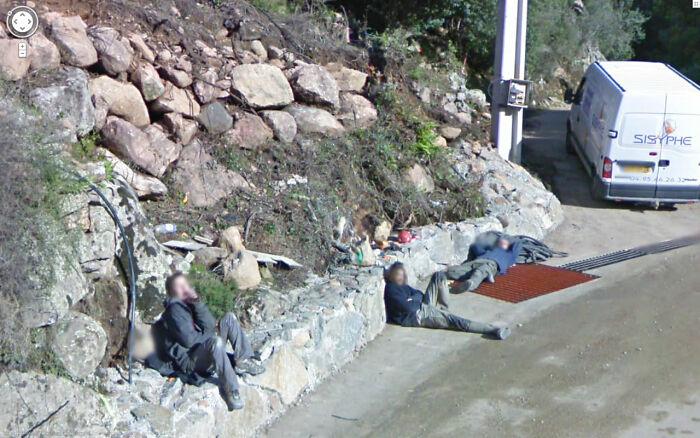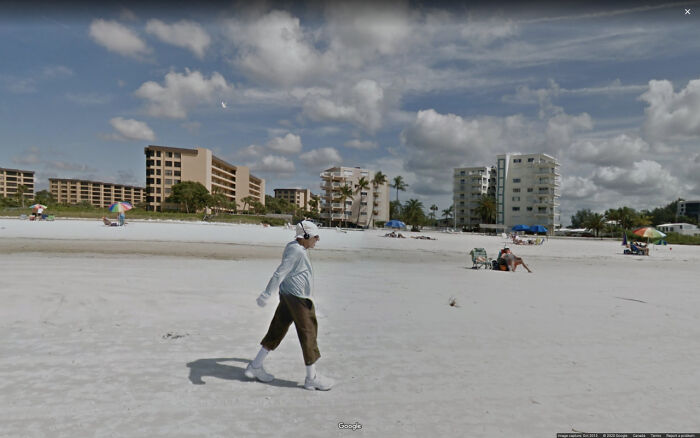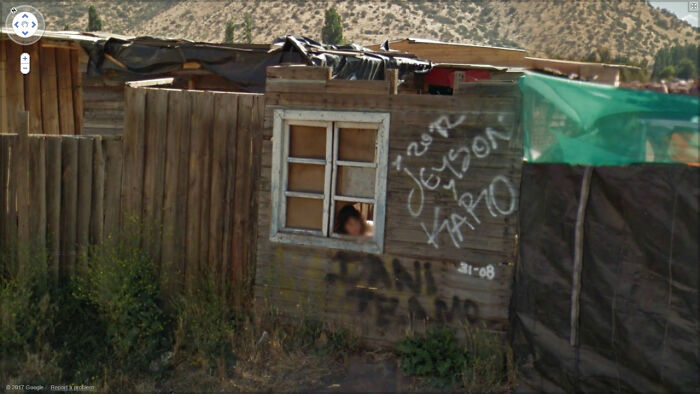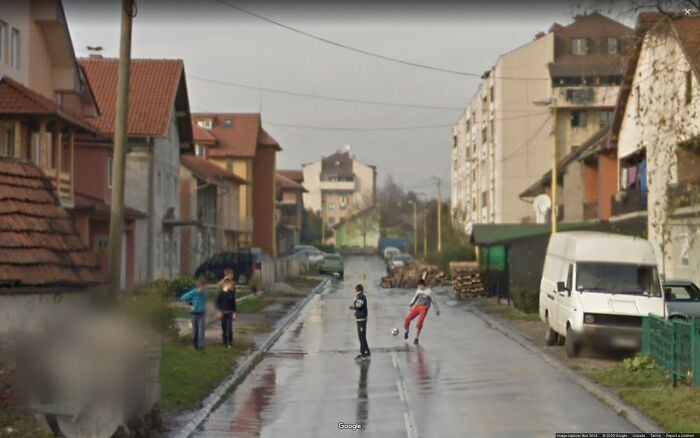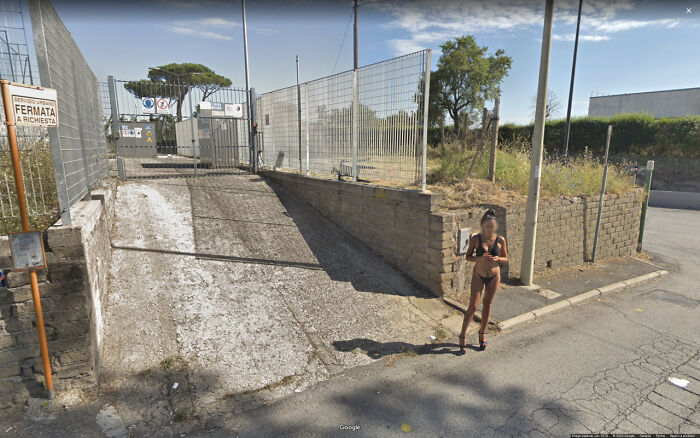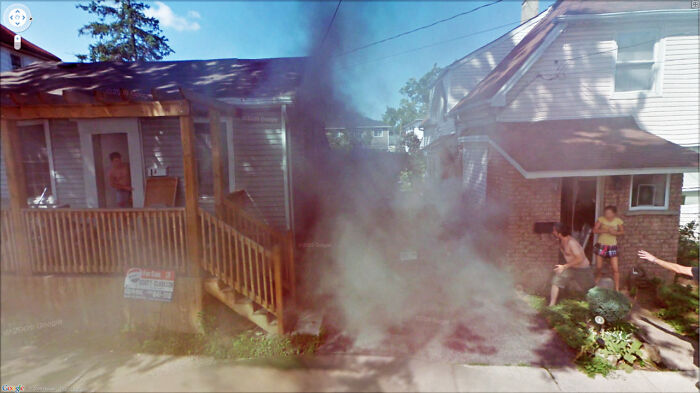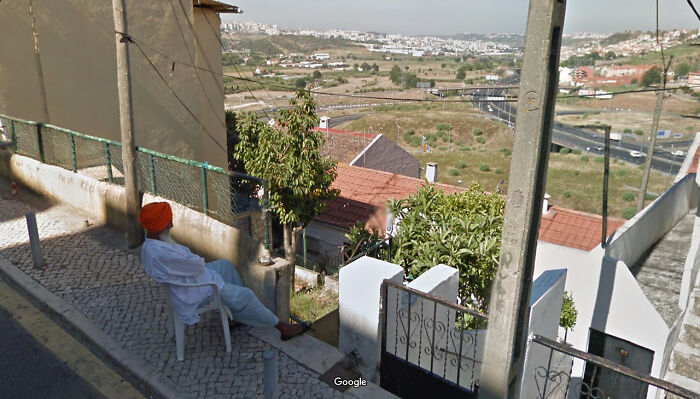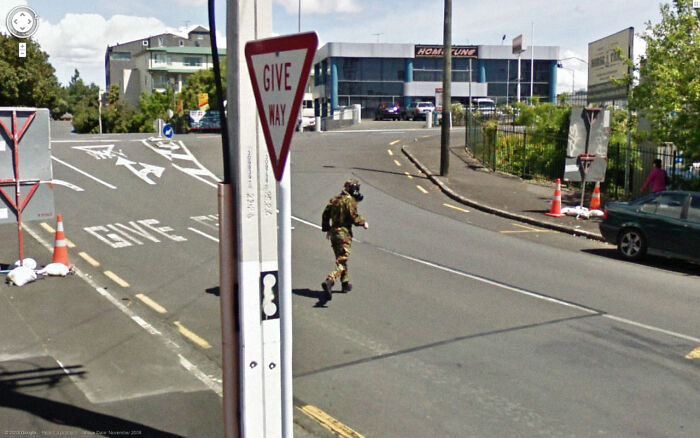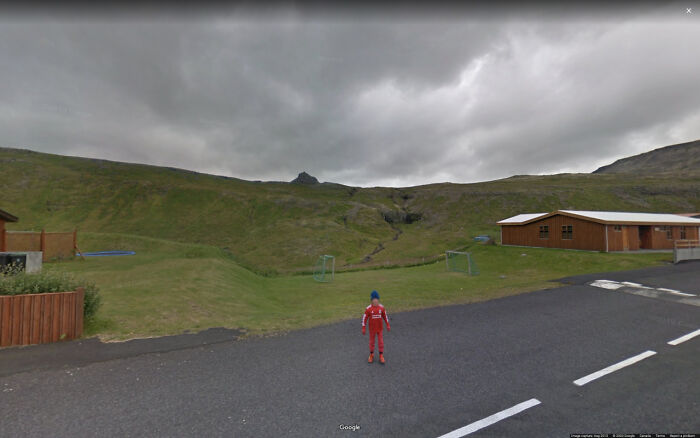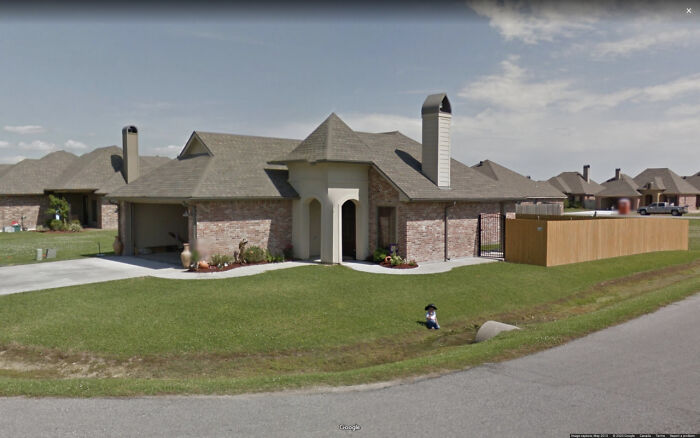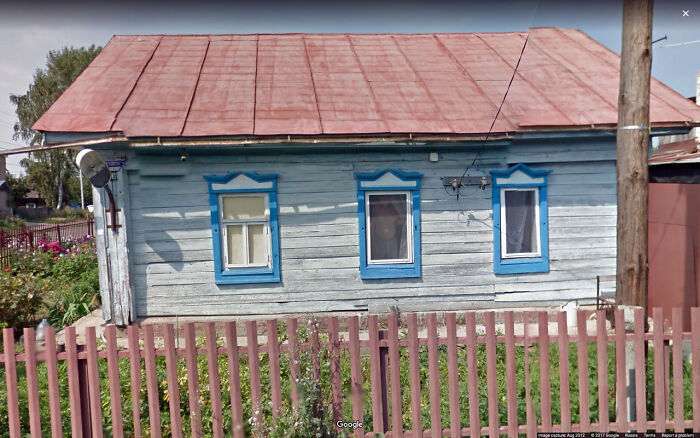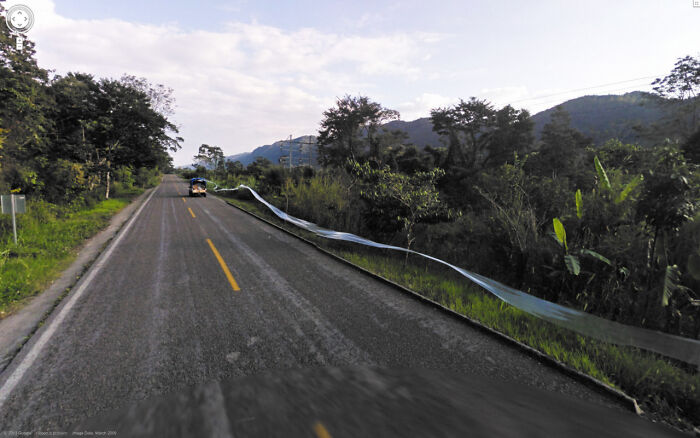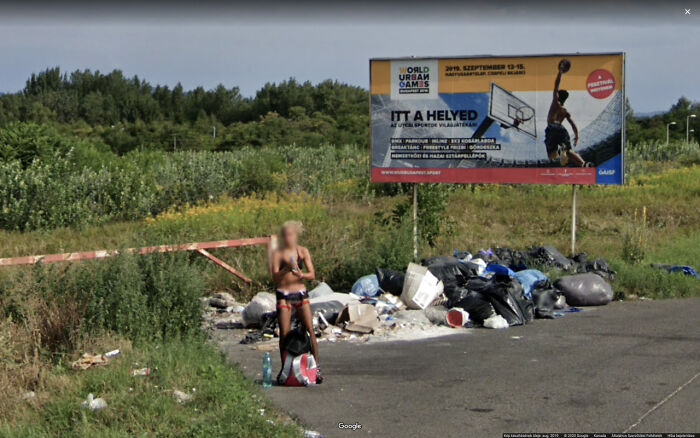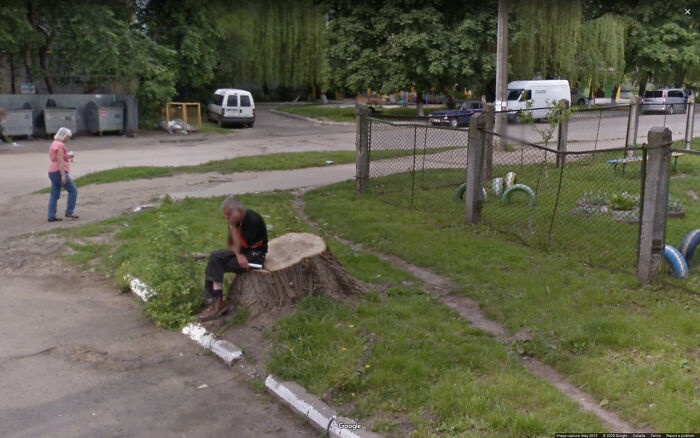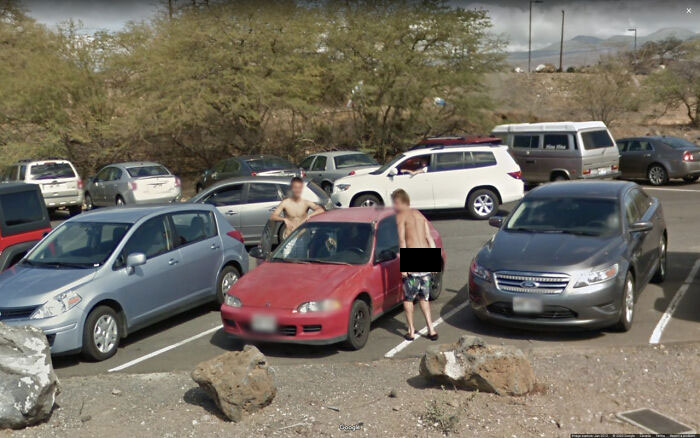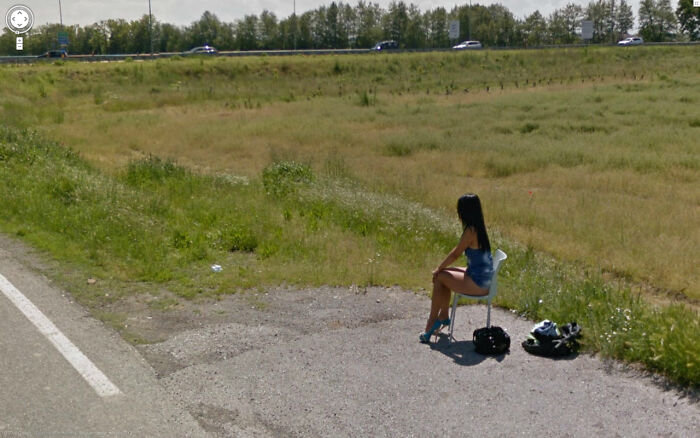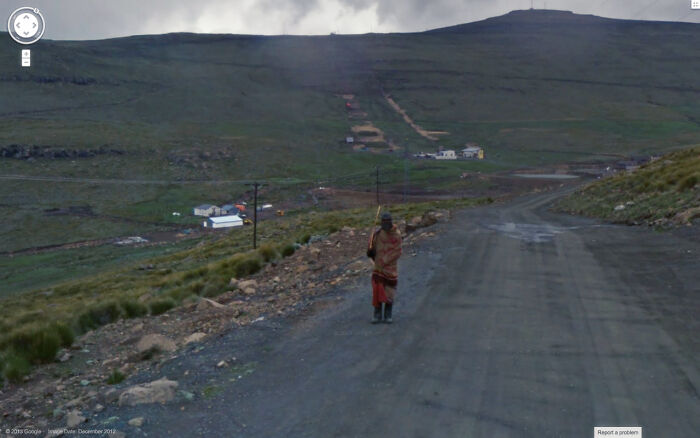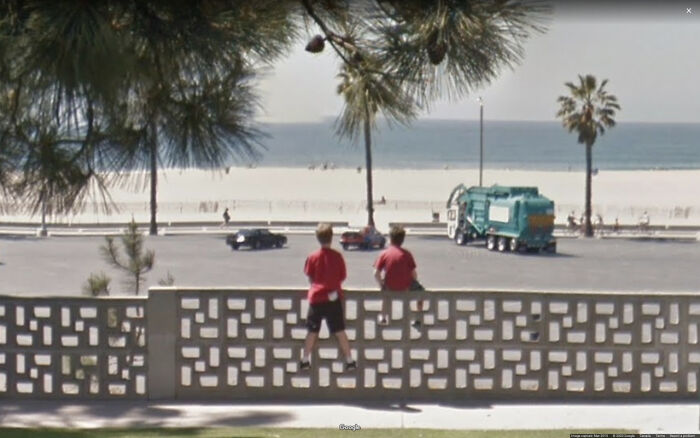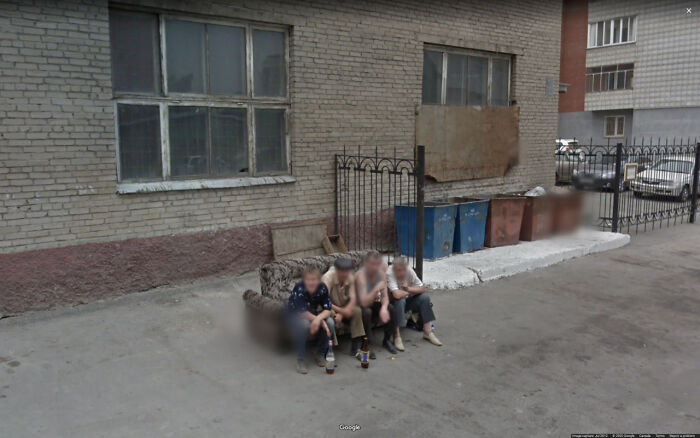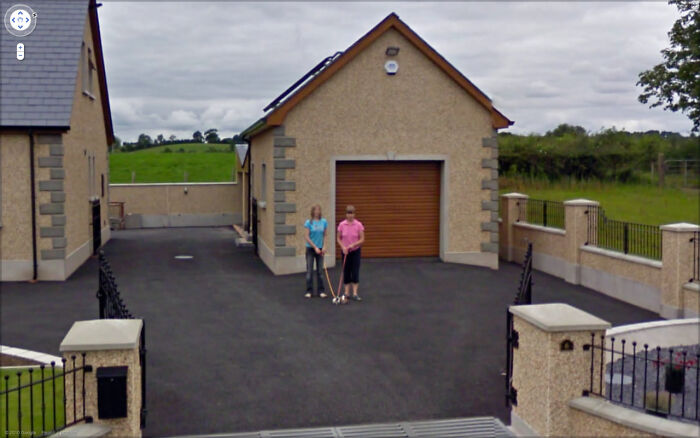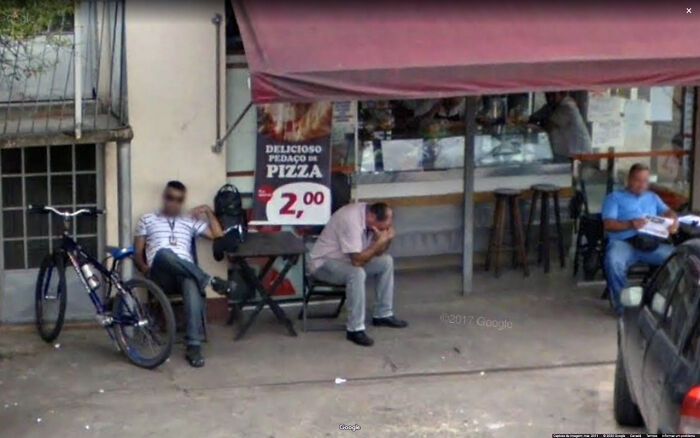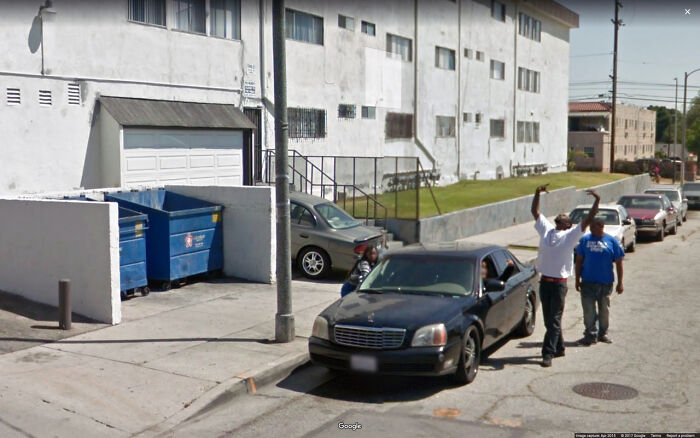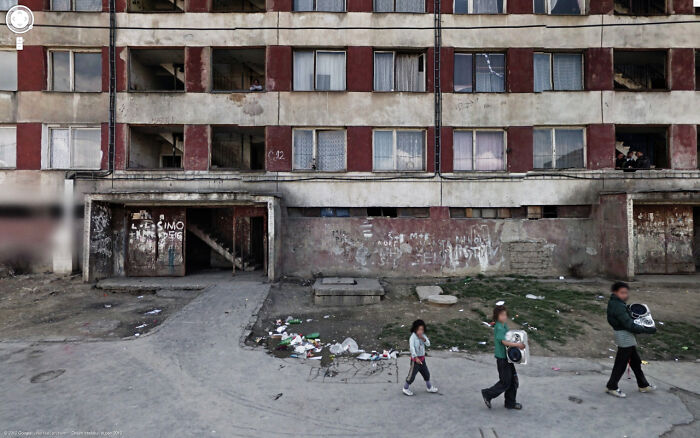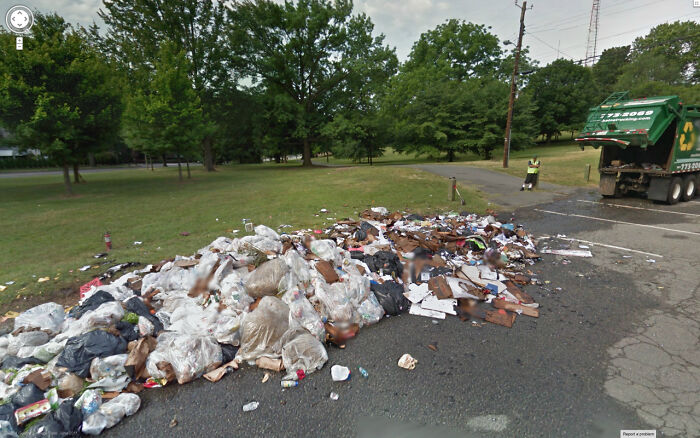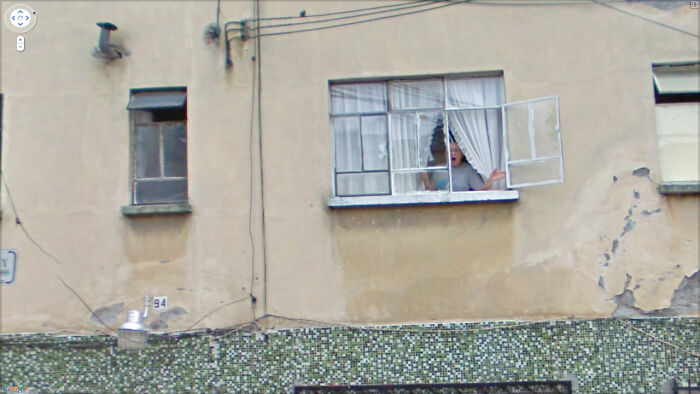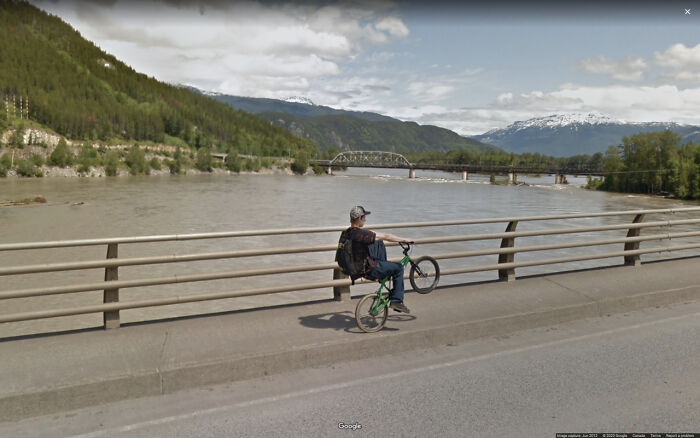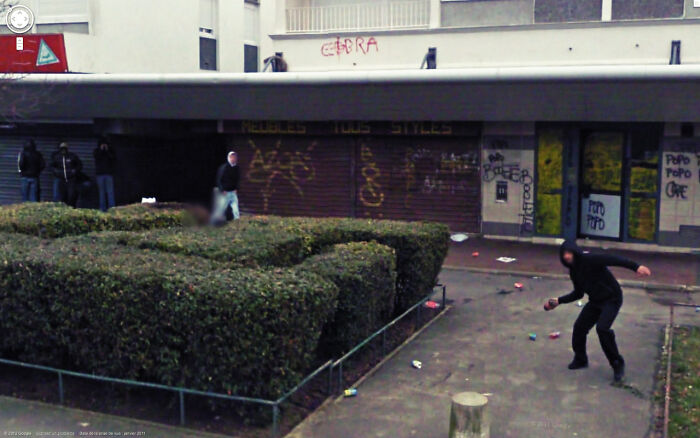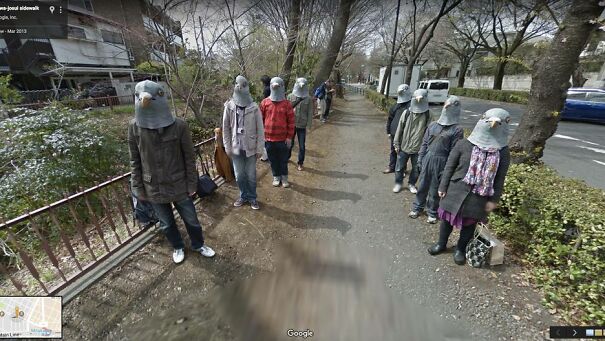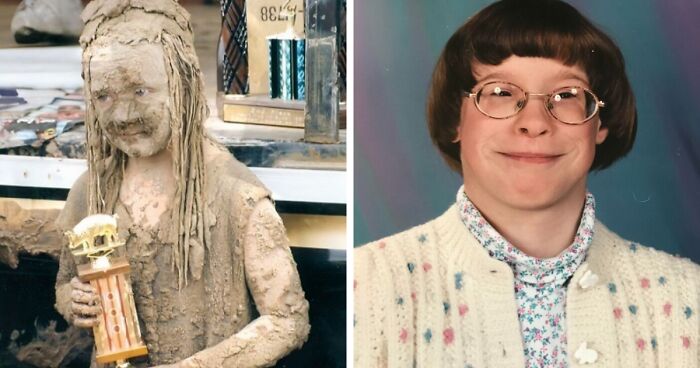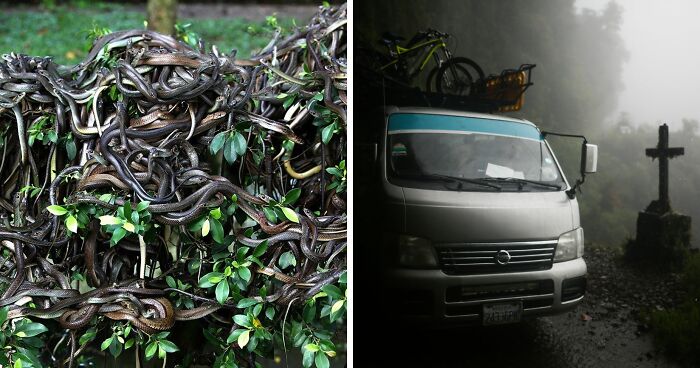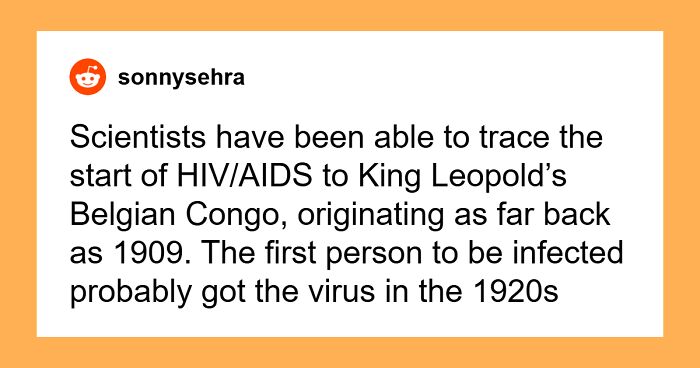If you've been reading Bored Panda long enough, you might remember Jon Rafman. He's the legendary artist who "walks" around in Google Street View and takes pictures of the funniest and most interesting sights he comes across.
From a lone toilet in the woods to a shredded FedEx truck, I bet even Google didn't expect to capture these things. And who knows how long it would have taken us to spot these gems if it wasn't for Rafman.
Rafman finds hope and honesty within the vast digital map, and whether he's running with wild animals or exploring software glitches, he's the one who makes the matrix a little warmer.
More info: jonrafman.com | Instagram | YouTube | tumblr | Twitter
This post may include affiliate links.
After Rafman graduated, he discovered a community of artists on the social bookmarking site del.icio.us. He said it really felt that an incredible artistic dialogue was taking place informally: a new vernacular was being formed online.
"There was so much energy to it," Jon explained. "The dialogue was so exciting, mixing humour and irony, critique and celebration. Del.icio.us was the platform on which I really started working with the Internet. At this point, Facebook and Tumblr have pretty much replaced it."
He had known about early Internet art but was never attracted to its glitchy aesthetic. So when he discovered this community, Rafman felt like he had found what he had been searching for all through art school.
"Del.icio.us led me to various different collectives like Paintfx. That is the period when I started my Google Street View project," he explained.
"The project started out as PDF books. And then I started to print out the images just like photographs," Rafman said.
"I experimented with the printing for a while and eventually decided to print the images as large format C-prints. In 2009 the art blog Art Fag City asked me to write an essay, and that was when the project really took off, but I already had a huge archive of material by that stage. The 9-eyes tumblr blog came directly out of that. I had already been working with Google Street View (GSV) for one or two years when I created 9-eyes."
That looks impressive and scary! What is that? Some kind of sandstorm approaching?
Run!!!!! Morgan Freeman's back to narrate another penguin documentary!
At first, the project consisted of long, arduous surf sessions. Rafman went to places he wanted to visit, mainly in America (GSV had not been launched in many countries at the time), but not in a systematic way. As the project grew, however, he learned certain tricks.
"For example, the best place to go for images is to check where the Google cars are and to follow those. Otherwise, Google may have removed any ‘anomalies’, which often make the most interesting images."
Another mystical animal slips through the Google street view net - the unicorns and sea serpents are usually edited out immediately
After the project went viral, Rafman started getting tons of submissions from other people who were also exploring GSV. Some of these he used directly and some would act as a departure point to search for images.
"I was working a bit like a street photographer: keeping an open mind and responding to my intuition," Rafman said. "The process was really about editing down. The entire project is a process of subtraction: since everything has already been captured on GSV, it is about editing down until you find the core, essential moments. I think it could be considered as a major editing project."
"I told you idiots you're not supposed to turn on the abduction beam until we find the sheep in the other pictures!"
Rafman has also discovered online communities that also explore GSV. "There is a forum for pretty much anything you can think of. There is a forum where people only collect images of prostitutes, some of which I used in 9-eyes. I don’t like fetishizing labor. I don't want to play up the amount of time I spend finding these images. This can become a kind of artistic crutch. The greatest works of art for me can be a single gesture that took very little time at all."
Very pretty colour! But what happened here? Does anyone know? Are these trees sick?
The artist was already aware of photographic history when he began working on this project. "I really believe that photography was the medium of the twentieth century, because of the ambiguity surrounding the question of whether it was or was not art, due to photography's mechanical nature," Rafman said, adding that he saw GSV in some way as the ultimate conclusion of the medium of photography: the world being constantly photographed from every perspective all the time, as if photography had become an indifferent, neutral god observing the world.
If you wanna be judgemental about sex work, dont judge the workers but judge the buyers.
"The perceaphy ption of reality associated with photogris very modern. In the past, representations in the form of images were always imbued with a certain magical quality. The photograph shows a world that is empty of that. It is just a reflection of the surface of things. In that way, the photograph is the perfect embodiment of our perception of the modern world. More than specific photographic history, I was thinking of photography from a philosophical point of view."
Timeout punishments weren't just an idle threat in Carlos's family.
Forget the stretch Hummer and look at that magnificent giant tree on the right in the background!
What's happening here? Fight? Drunk? And why is there a person in an office chair in the middle of the sidewalk?
-Are you sure we're not gonna get caught? - Trust me, there's no-one around
I'm pretty sure this is the same bridge as is in #31--I just realized that
Ah yes, the ol' US of A. "Girls Work for Tips, Minimum Tip $5" - anything to shift the burden of actually paying the employees to the customer... That's on top of the sexual exploitation, of course.
6 people working and no 16 supervisors around? In what fairytale land is this?
Do the google-drivers get paid extra for driving in slums and ghettos?
If a fire starts inside a garbage truck while in transit, they dump the load onto the street and then the fire department douses it. After it cools off, they load it back onto the truck and off they go. Better than a flaming garbage truck barreling down the road.
I want to know the thought prosses that led up to this. But don't get me wrong: if I could be part of whatever this group is, I would!
Load More Replies...It's changed since but this used to be the Google maps pic of our house: featuring my hubby's butt while he bends over into his car! 10153247_1...d88deb.jpg 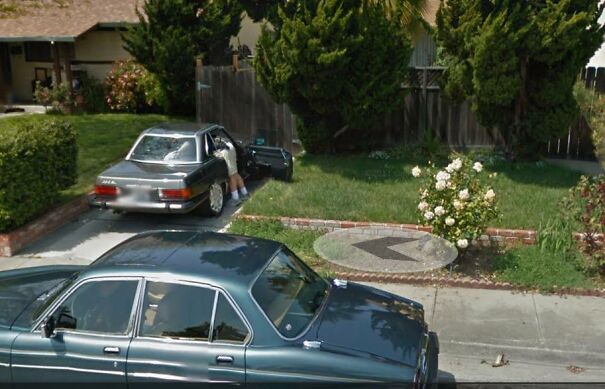
I want to know the thought prosses that led up to this. But don't get me wrong: if I could be part of whatever this group is, I would!
Load More Replies...It's changed since but this used to be the Google maps pic of our house: featuring my hubby's butt while he bends over into his car! 10153247_1...d88deb.jpg 

 Dark Mode
Dark Mode 

 No fees, cancel anytime
No fees, cancel anytime 






